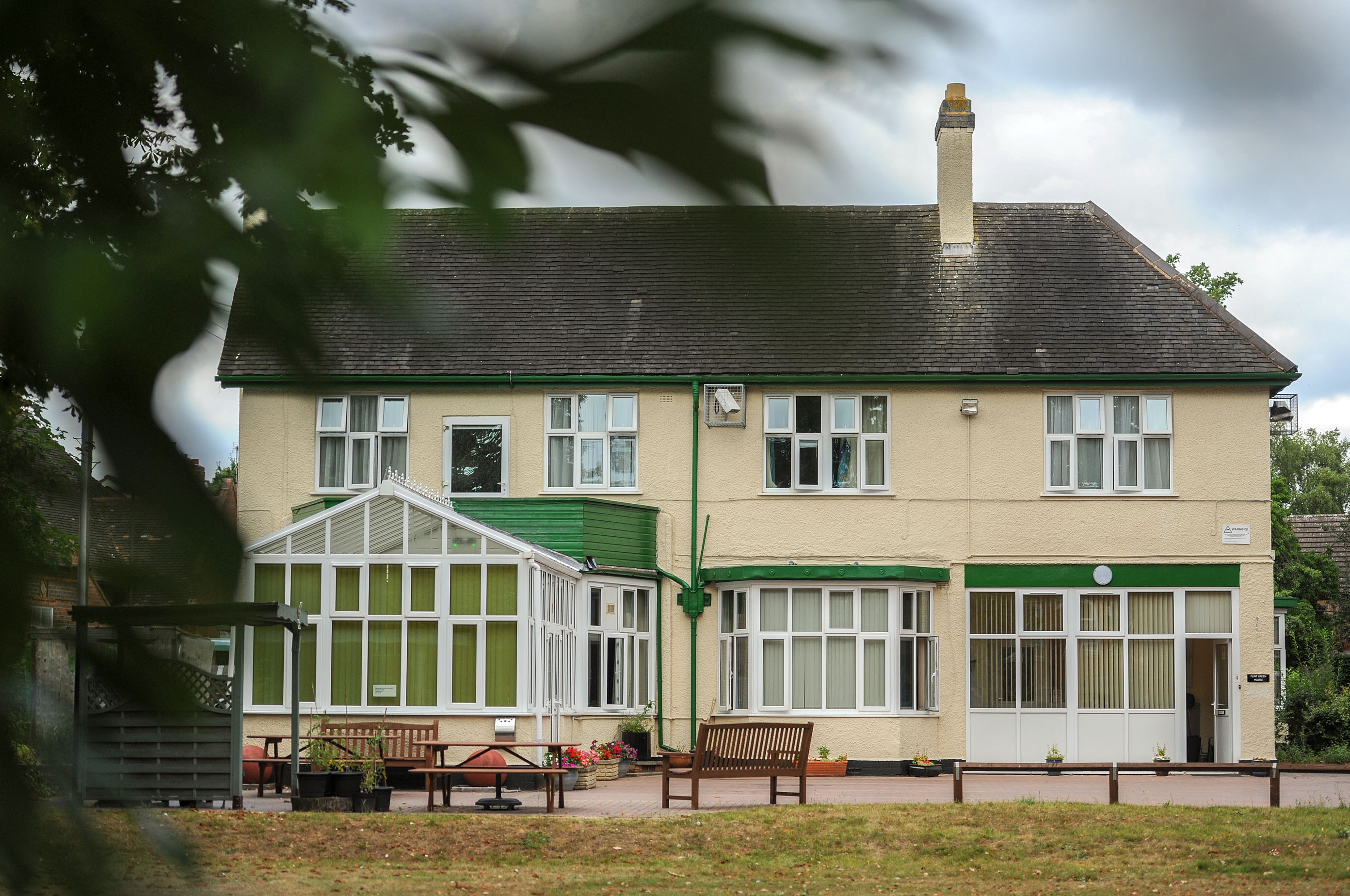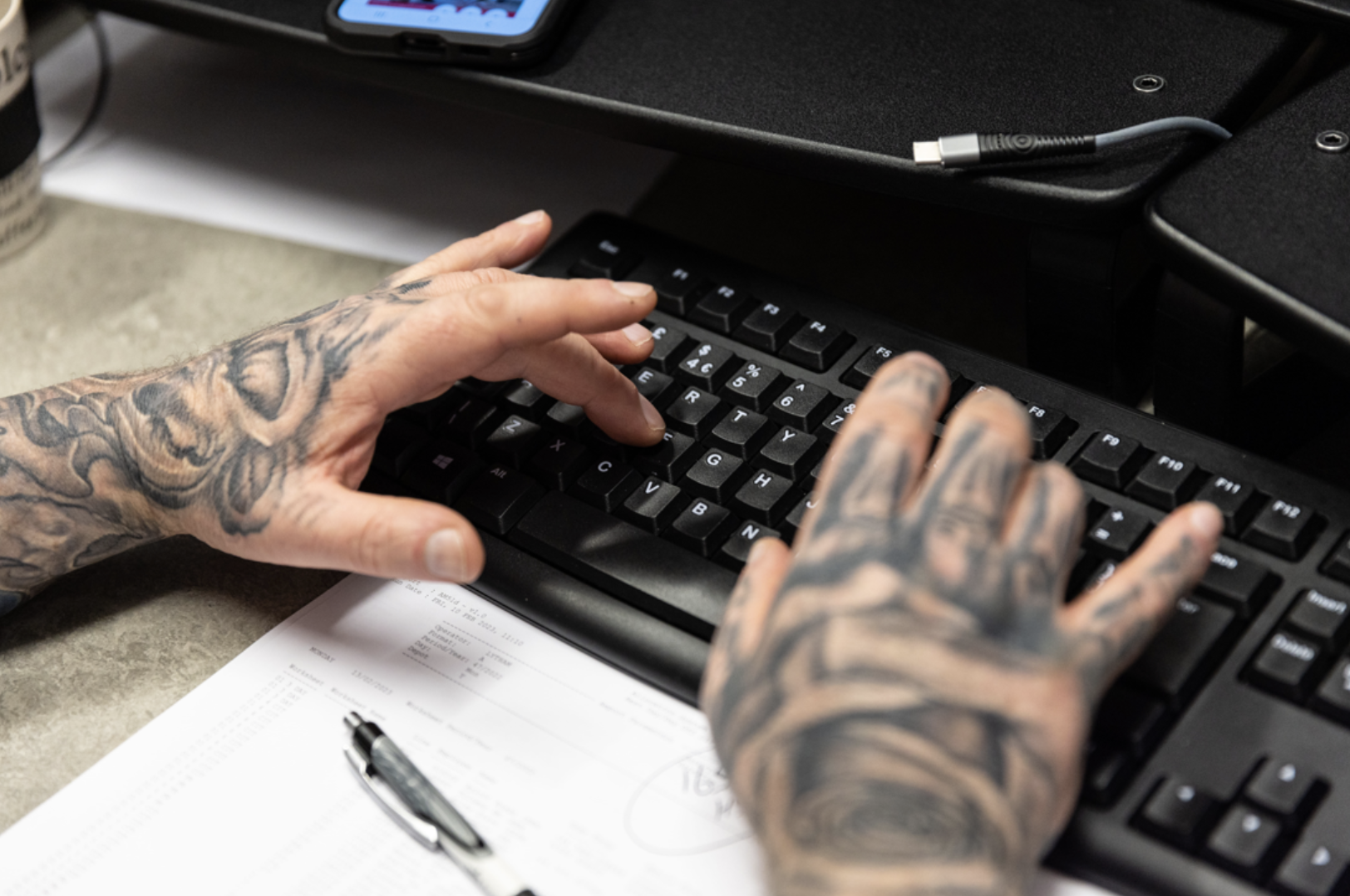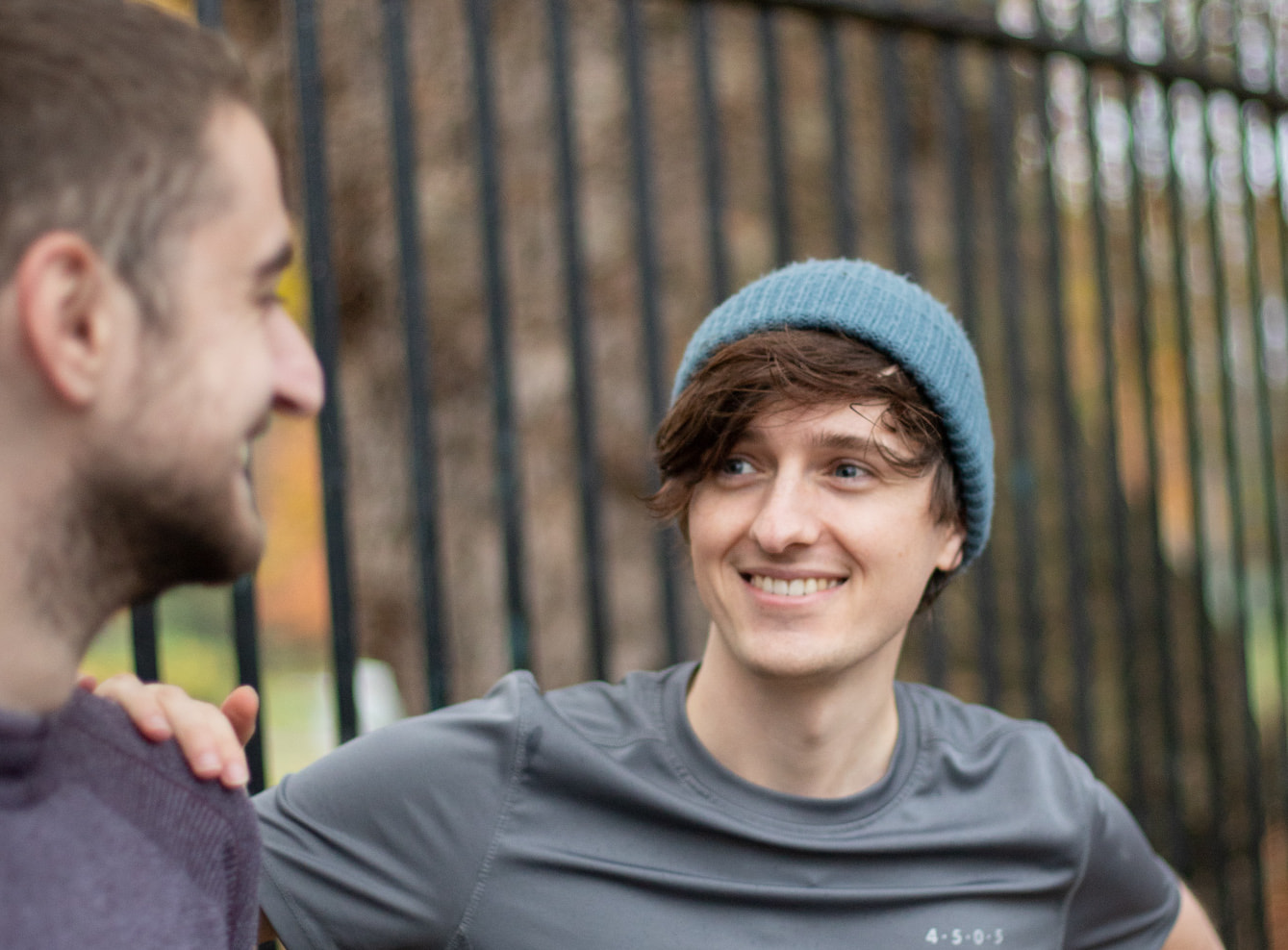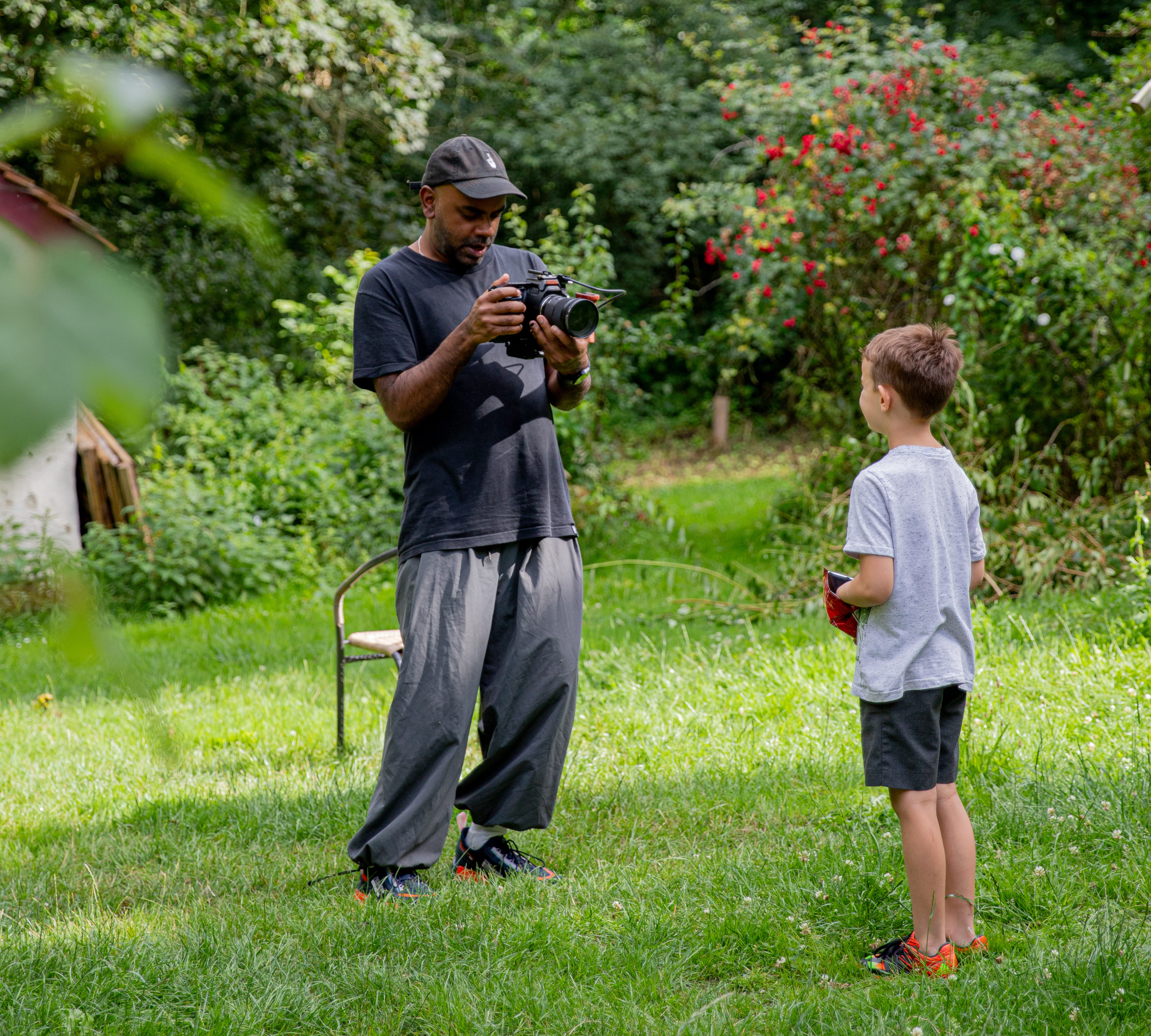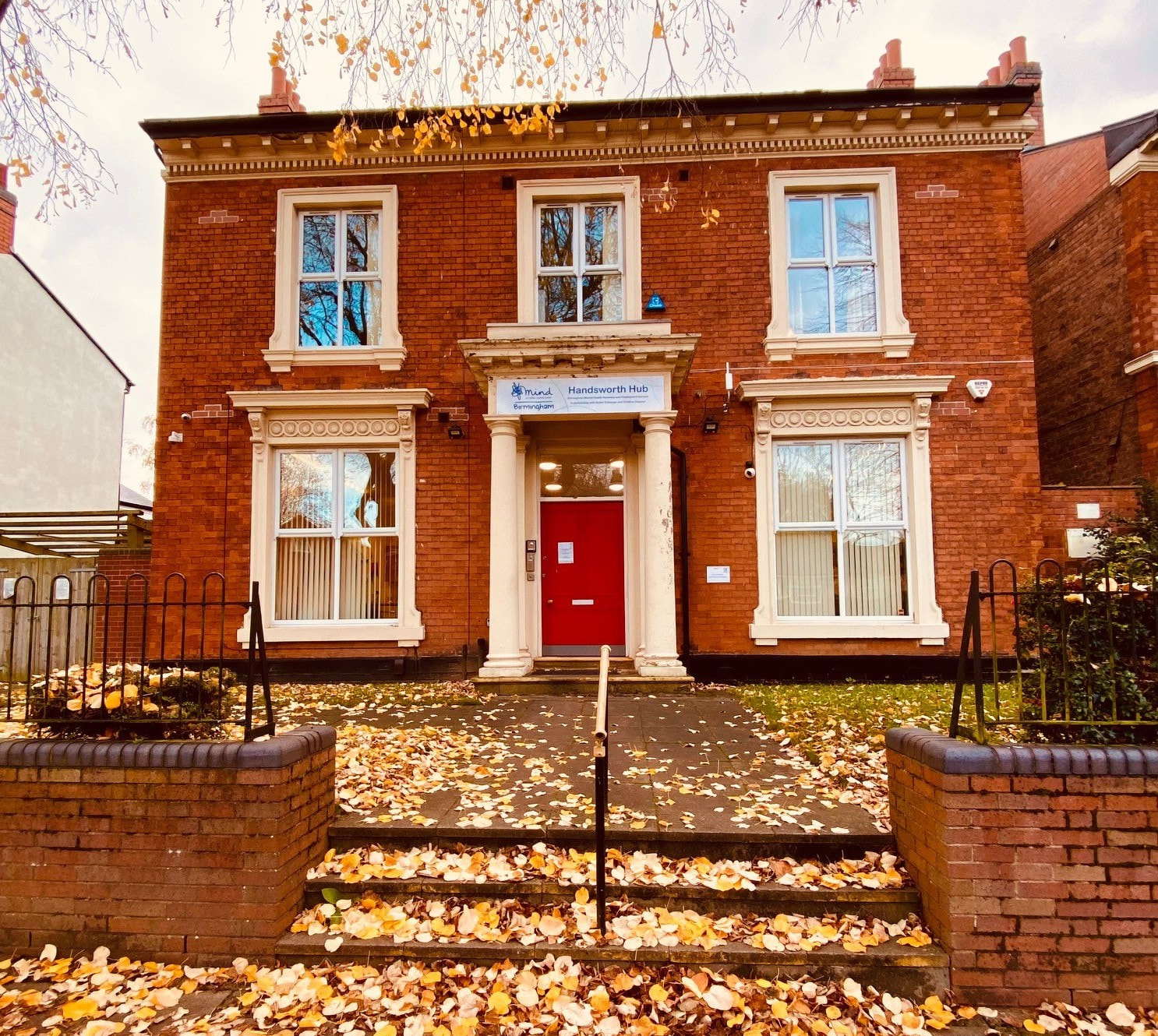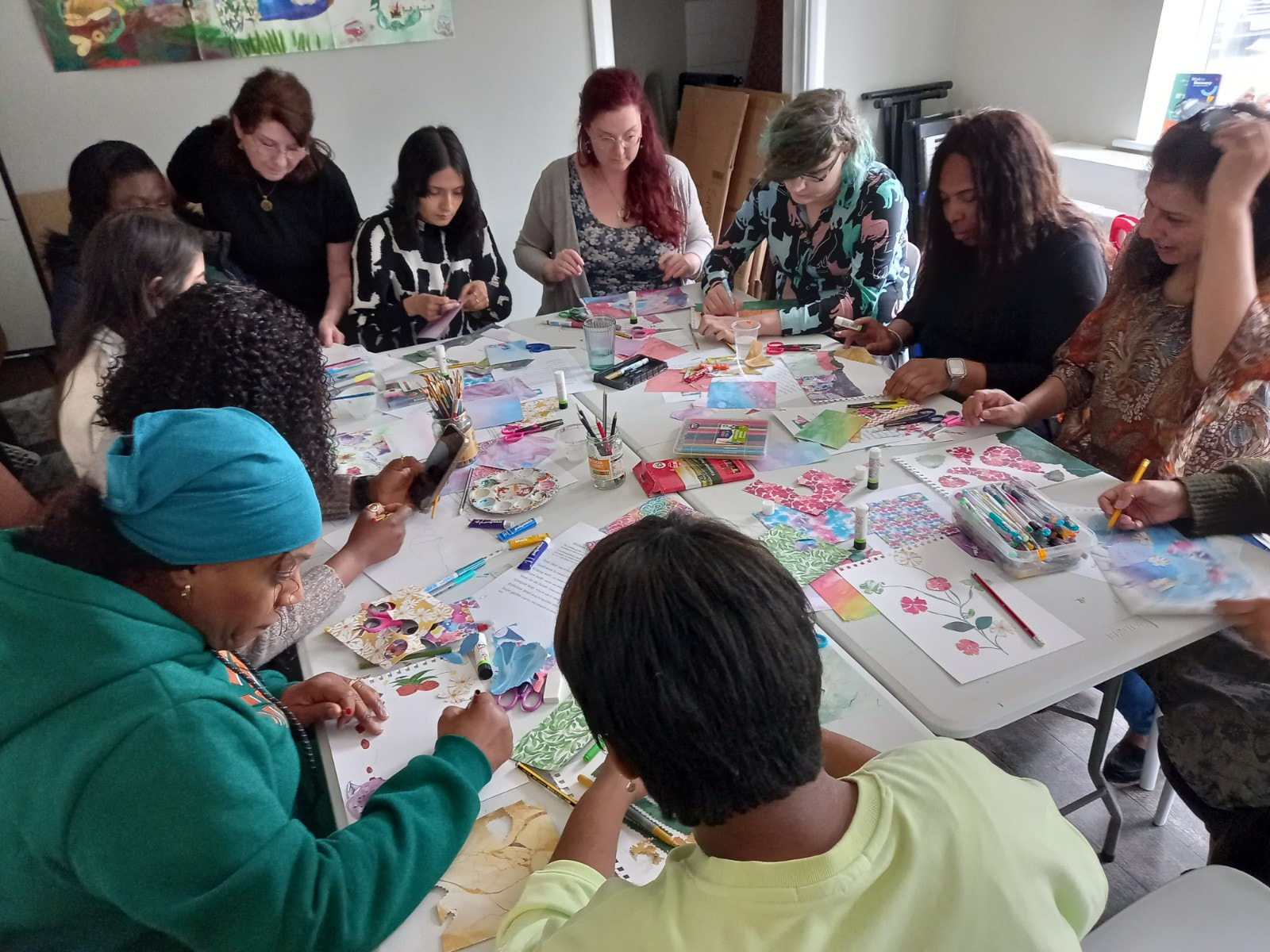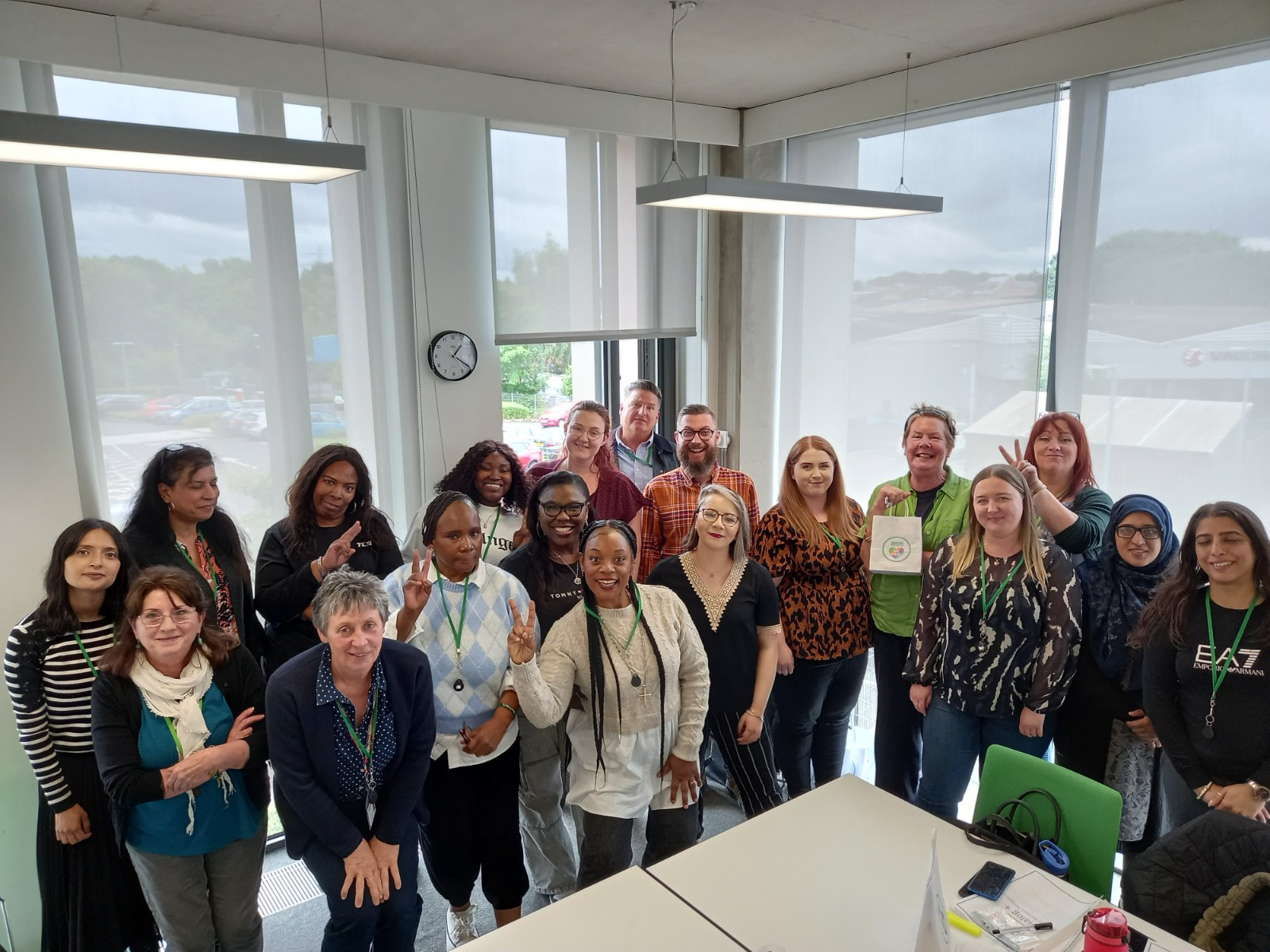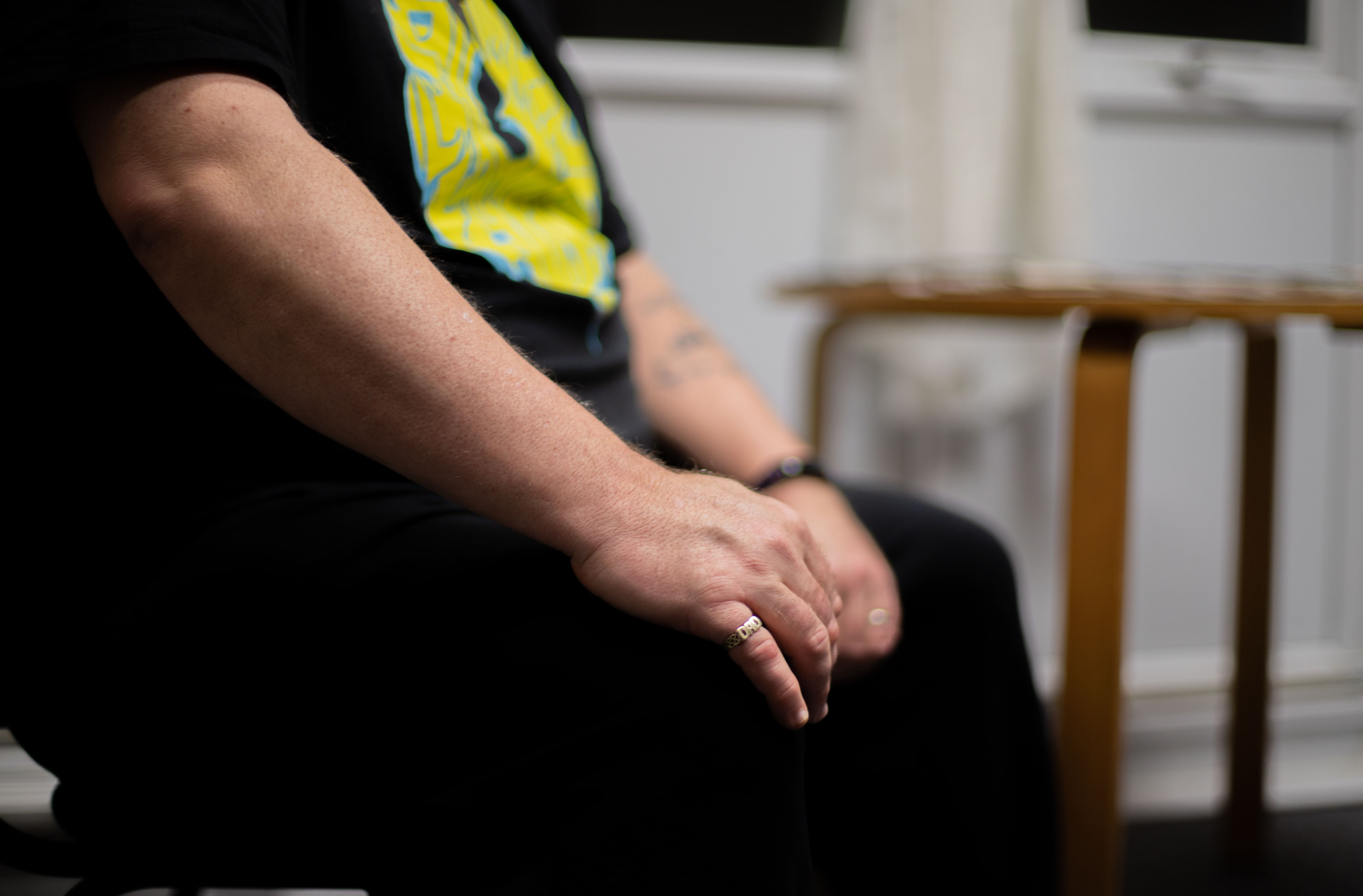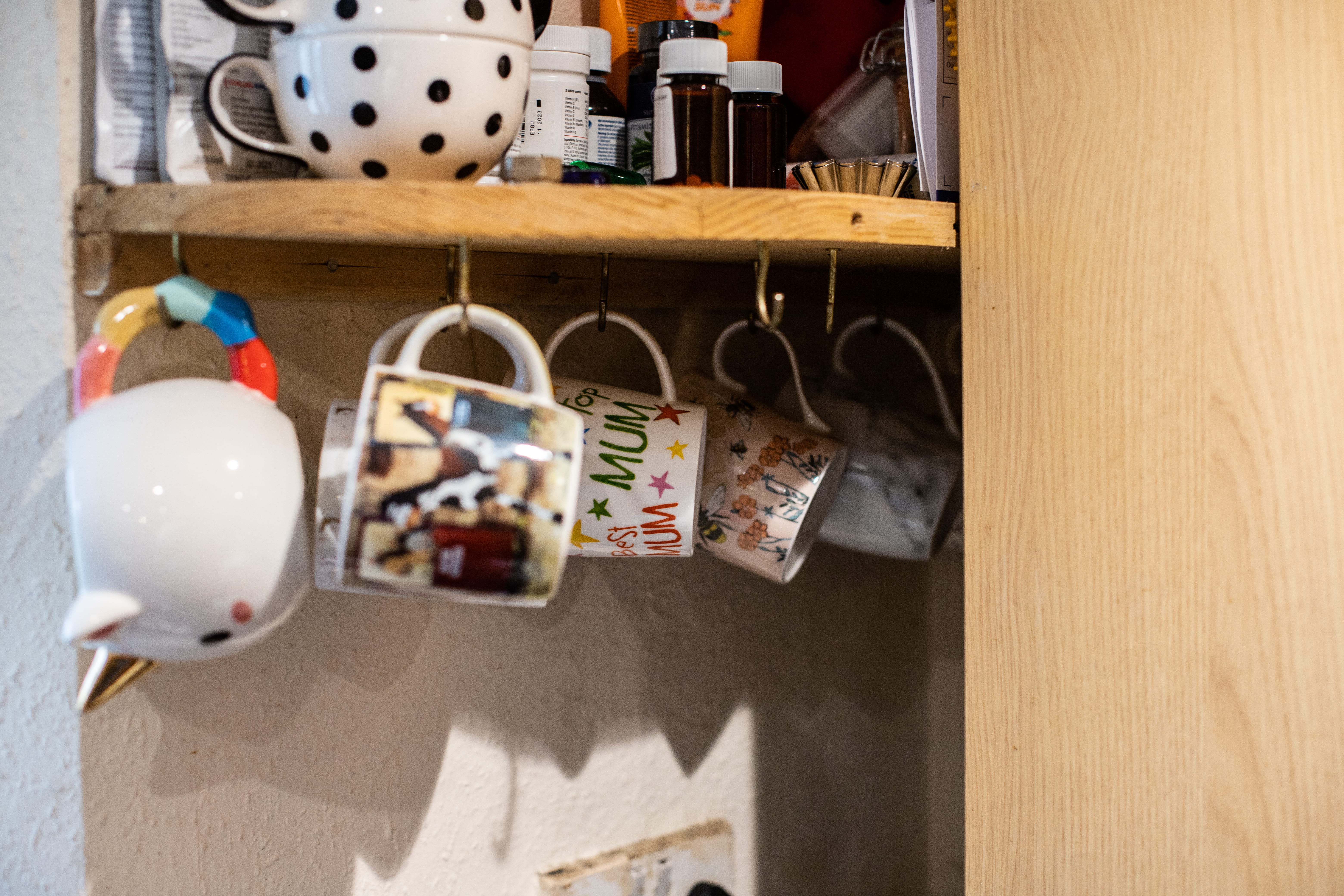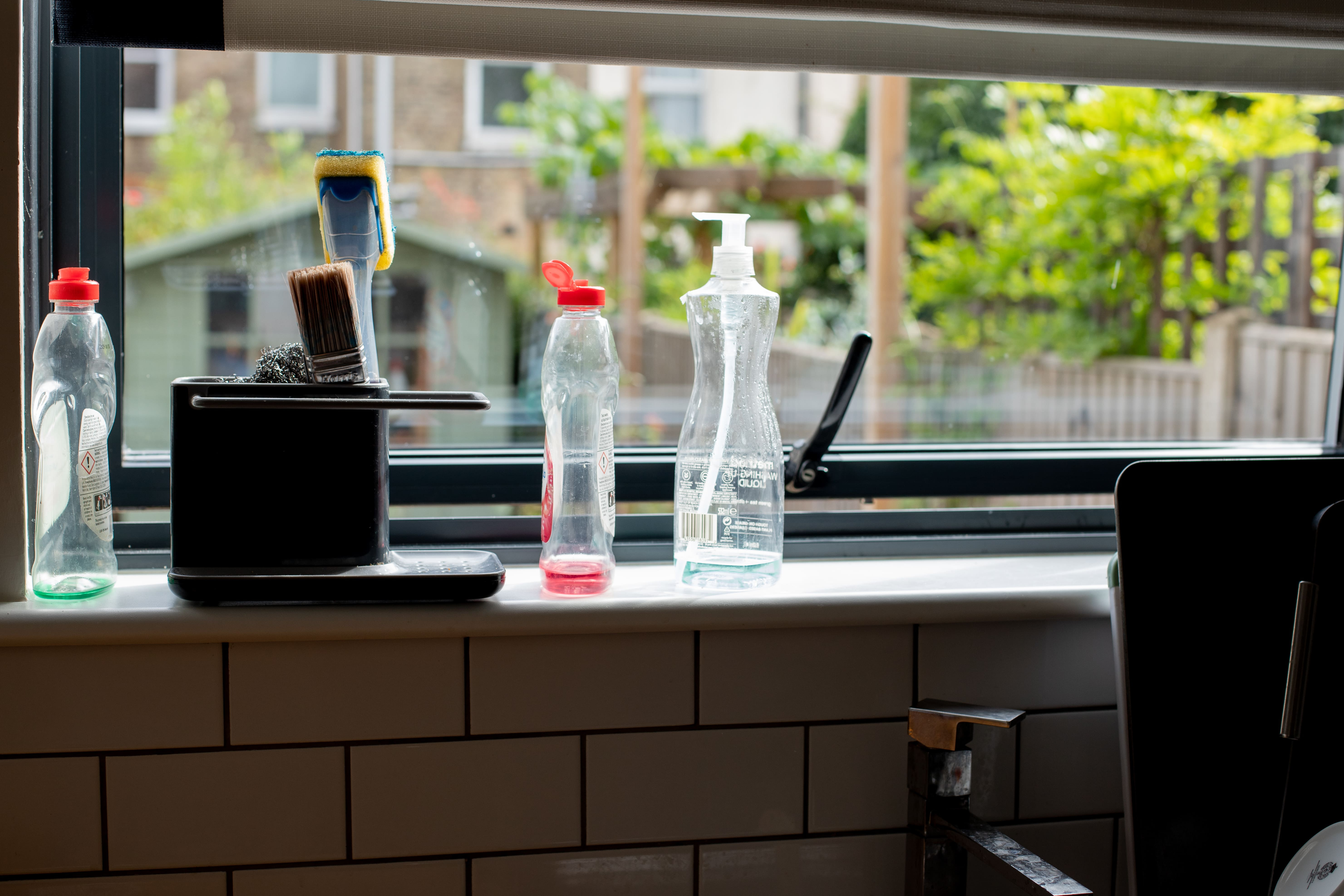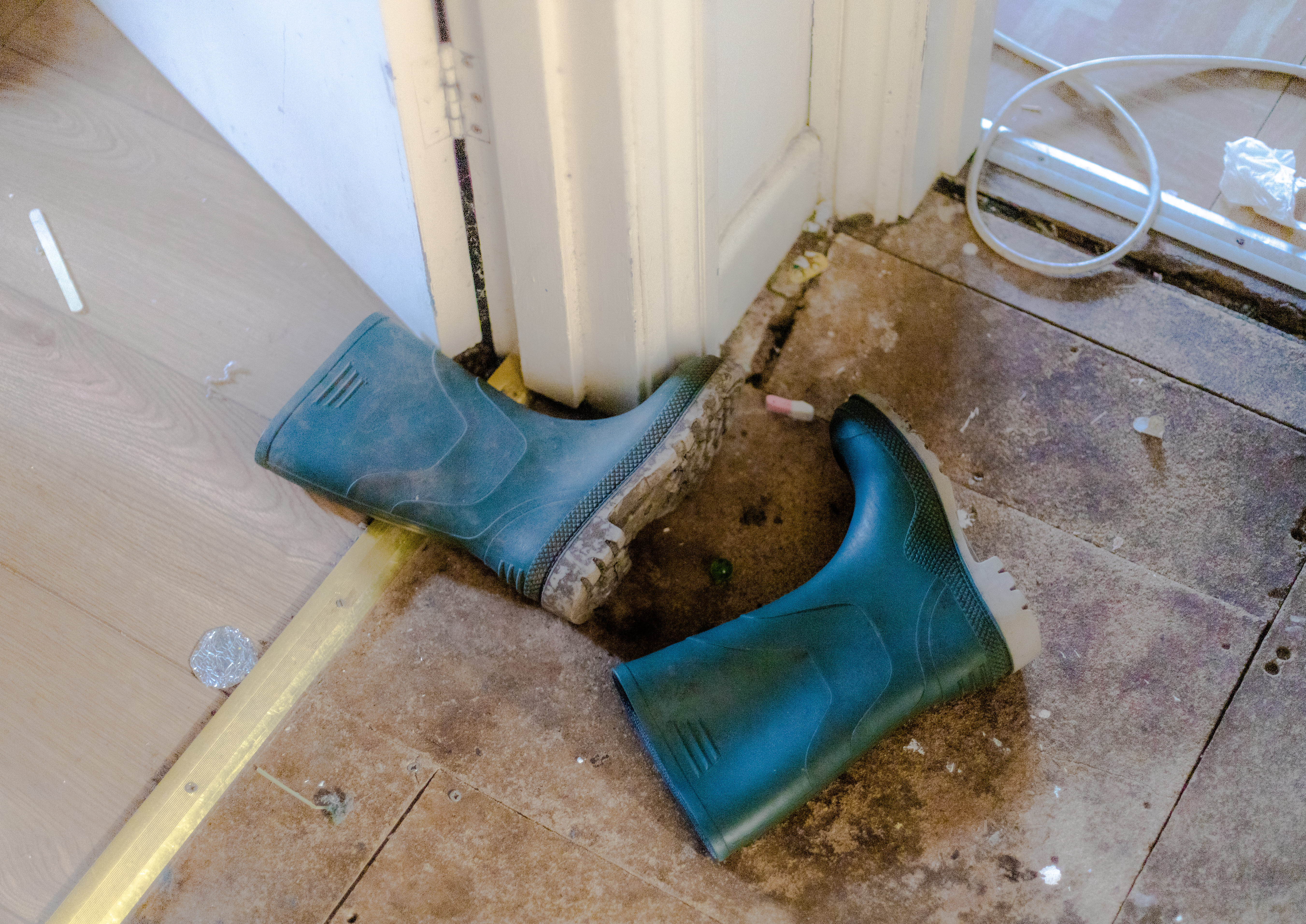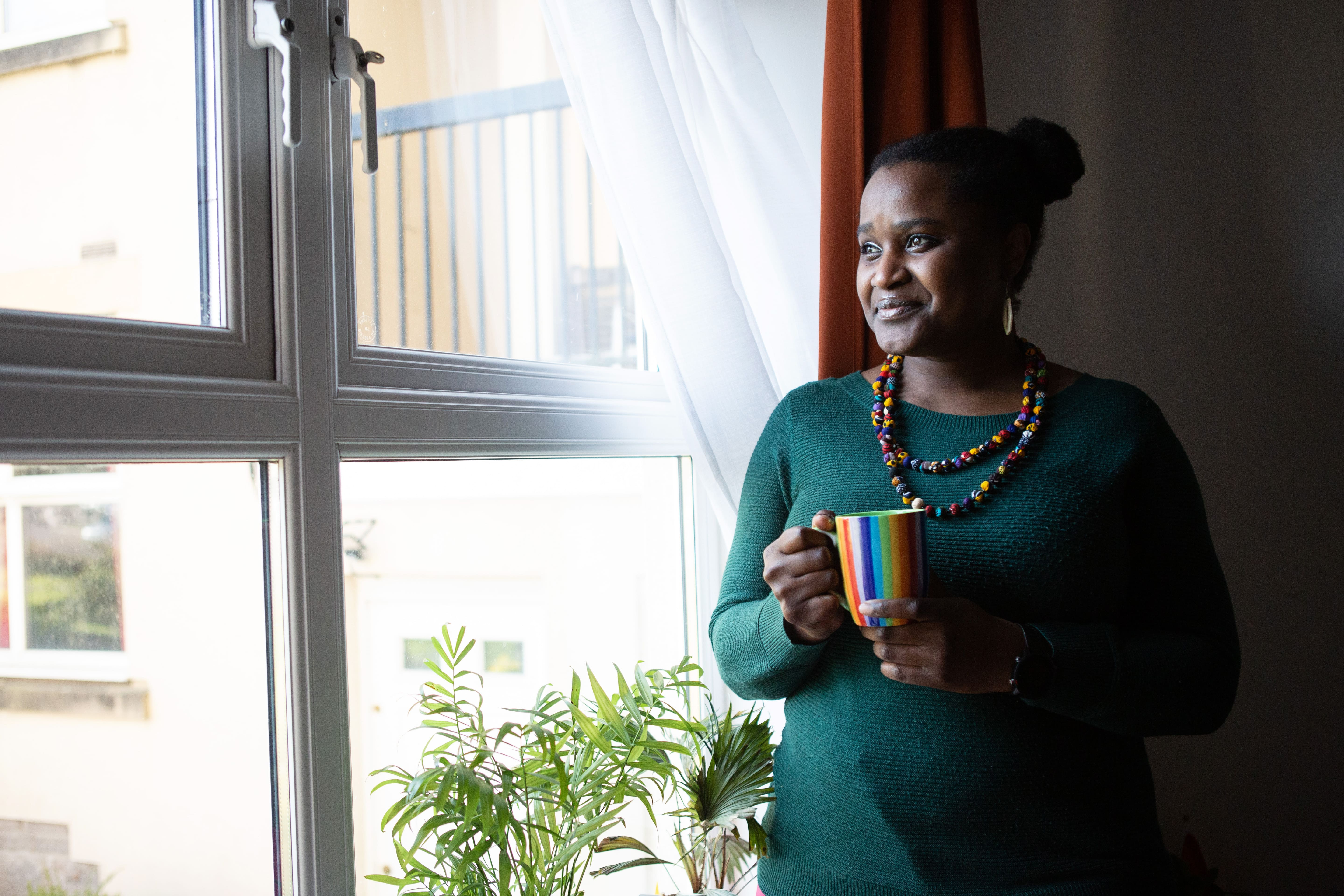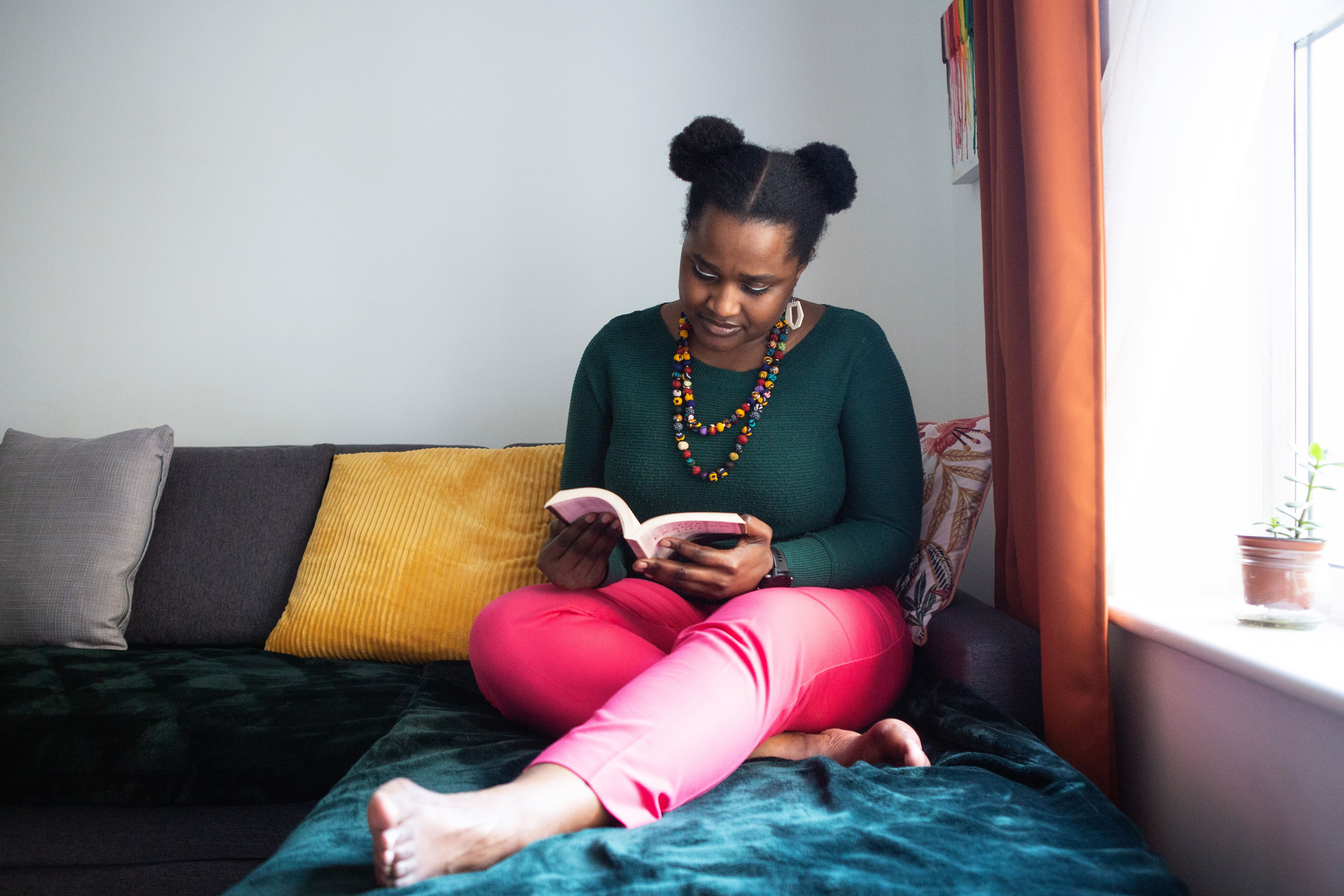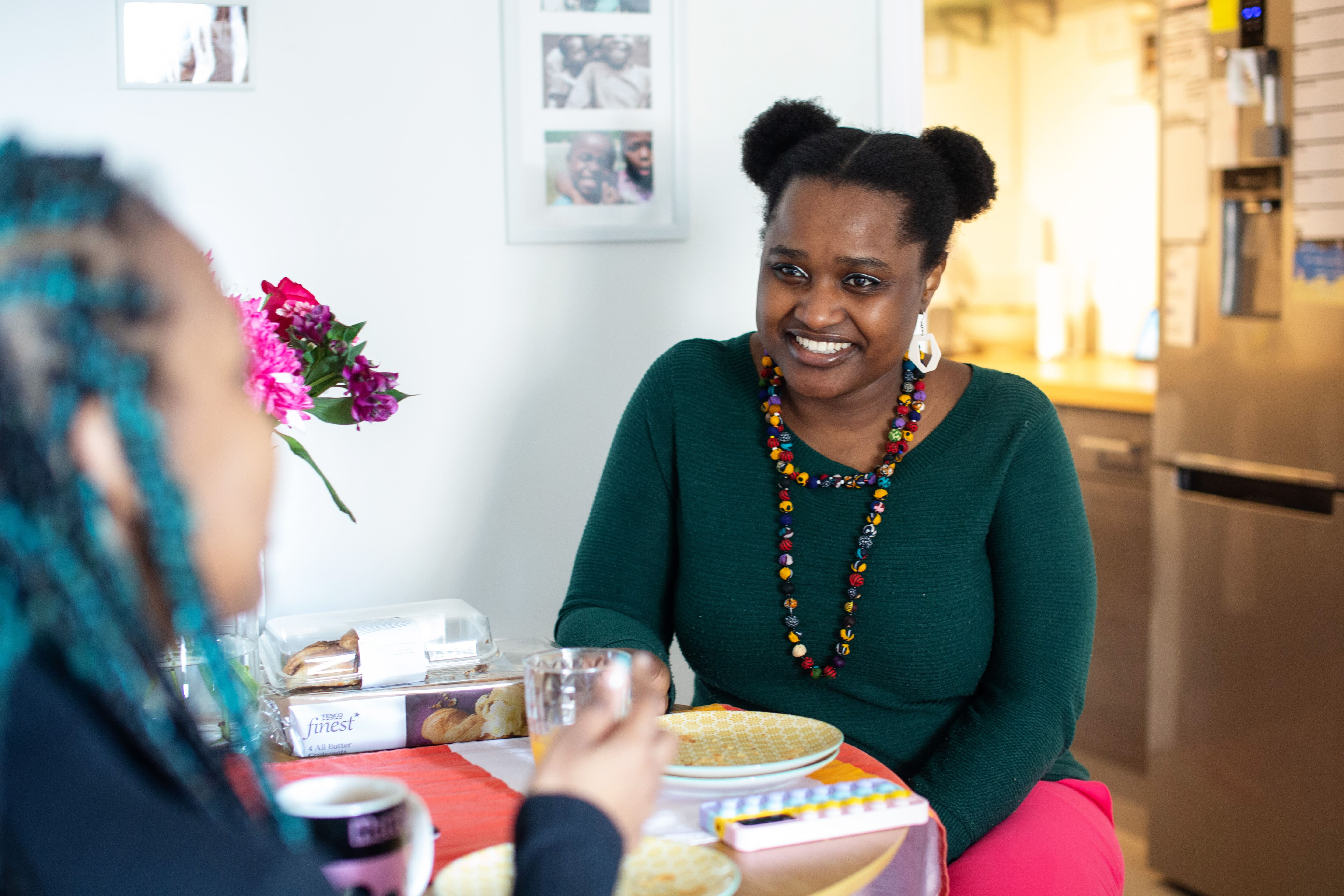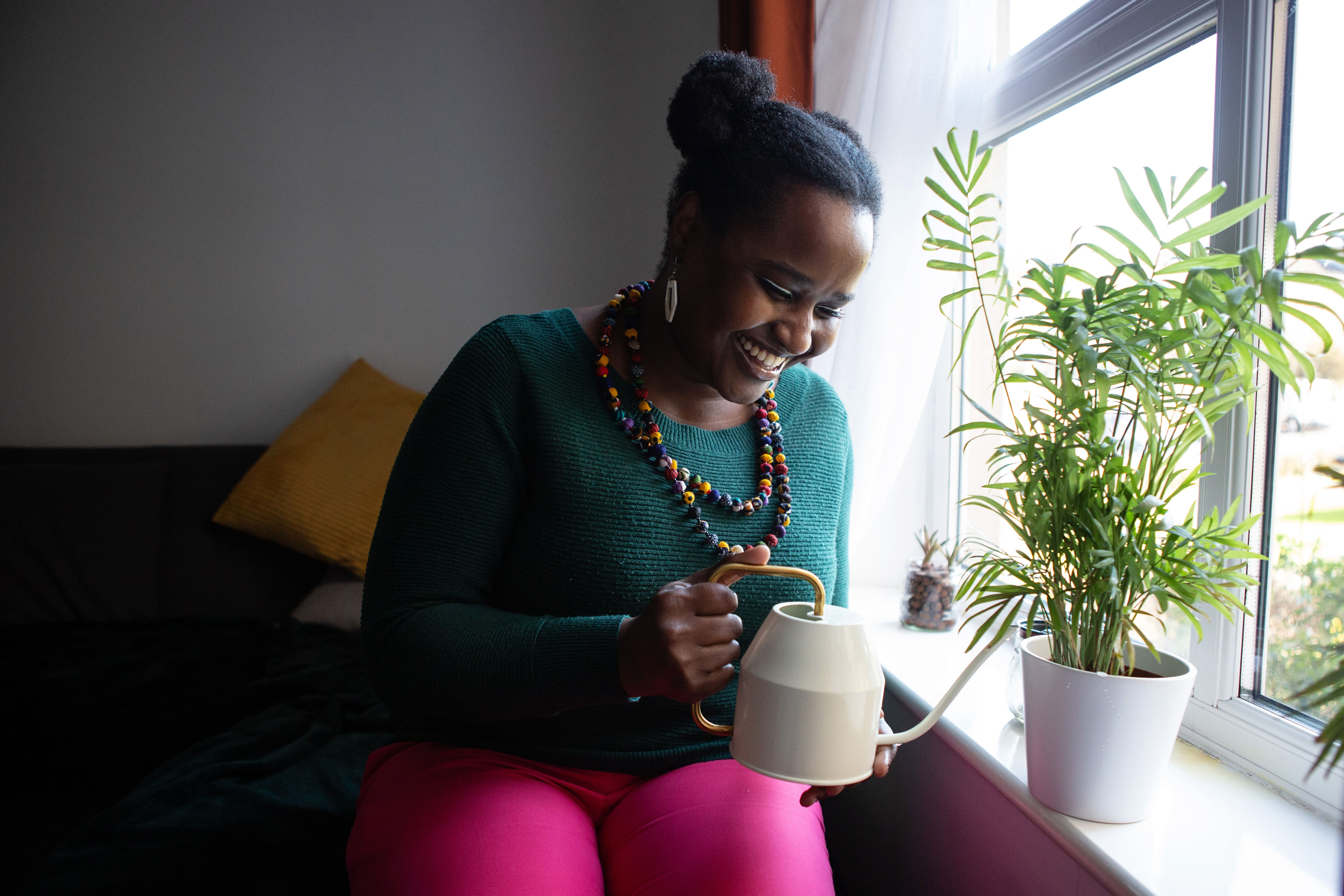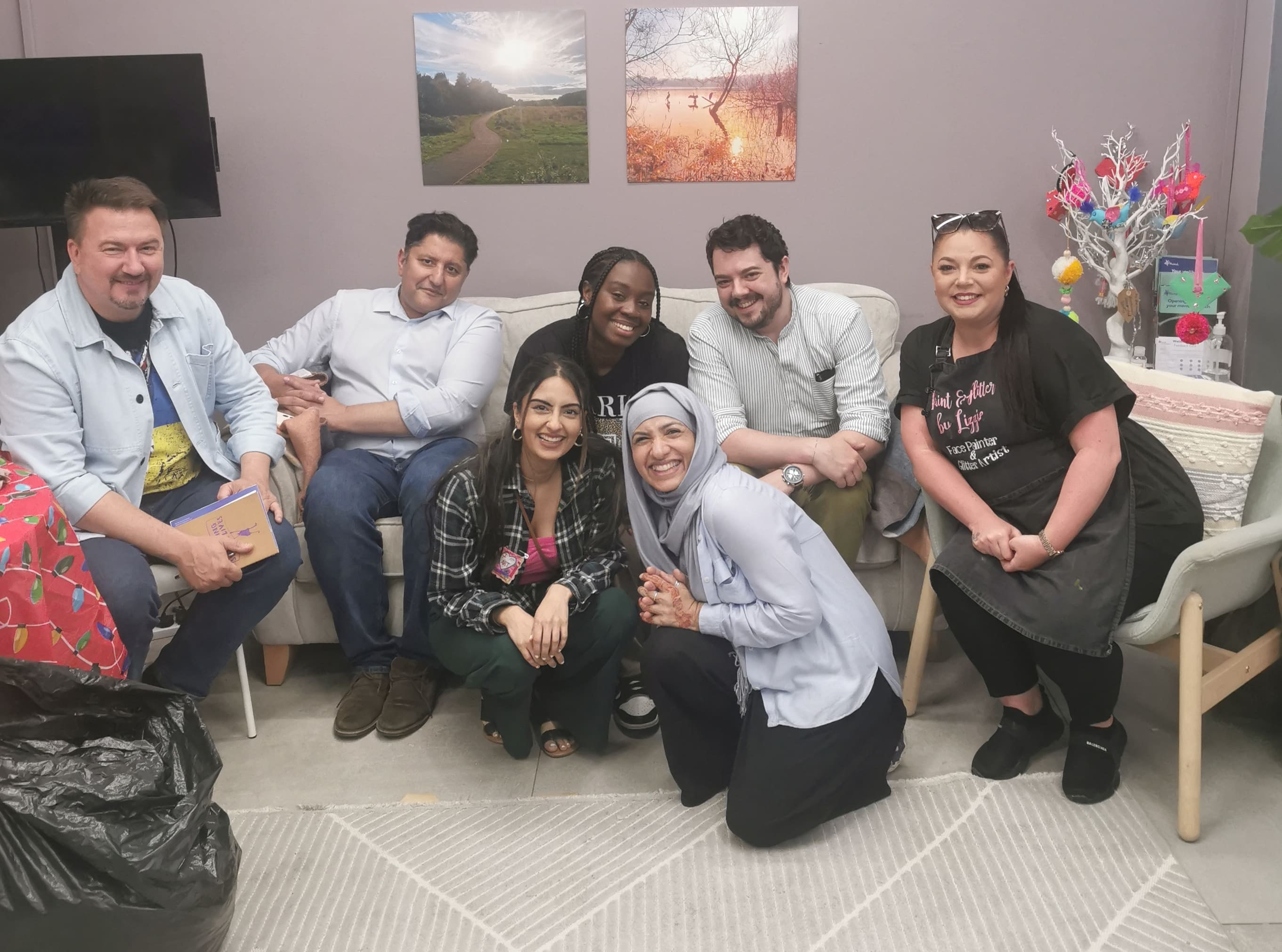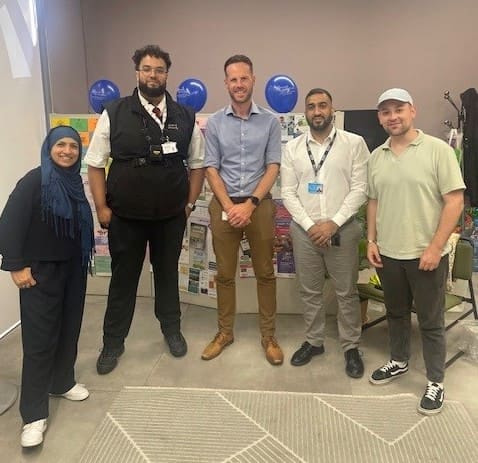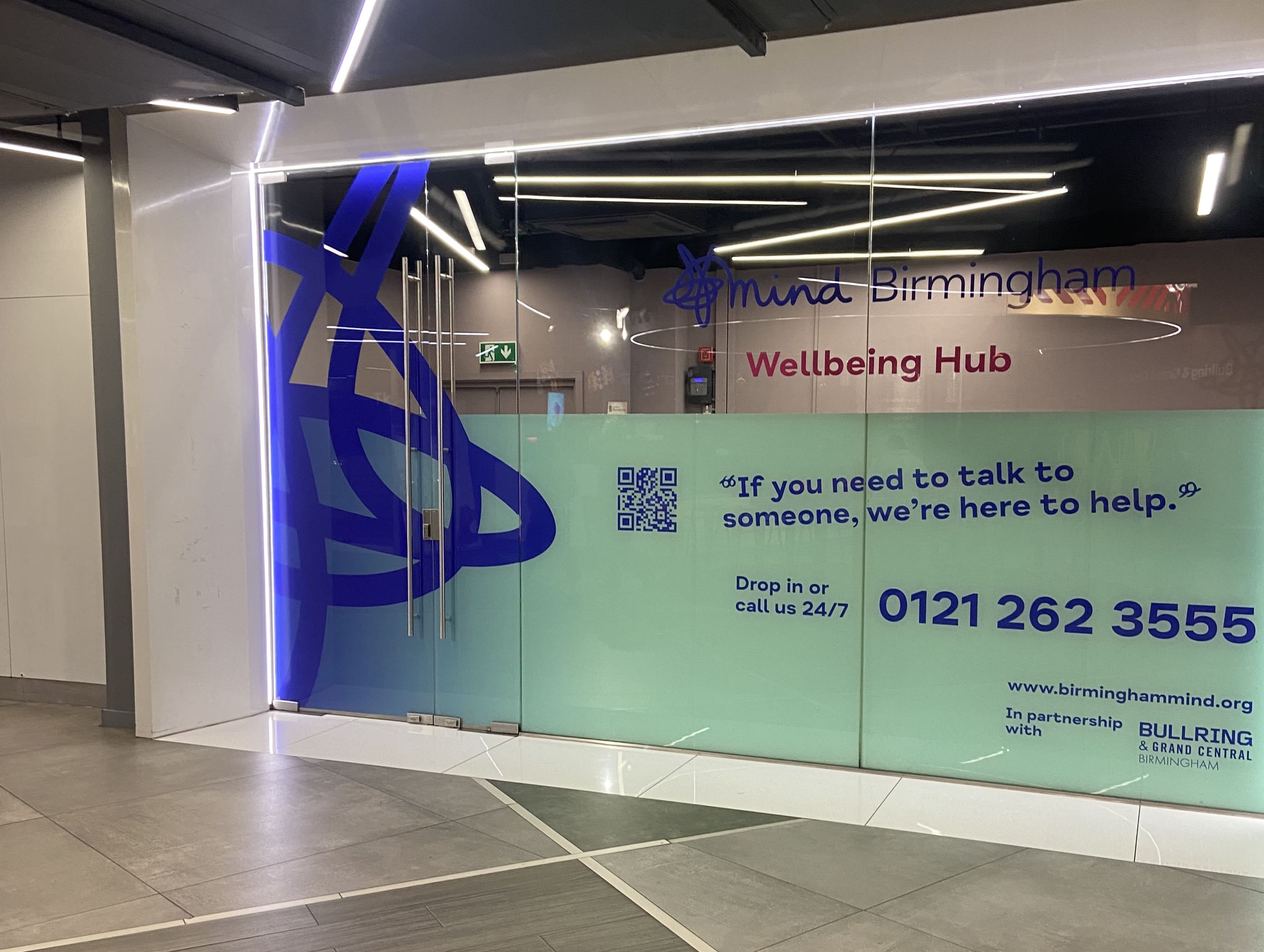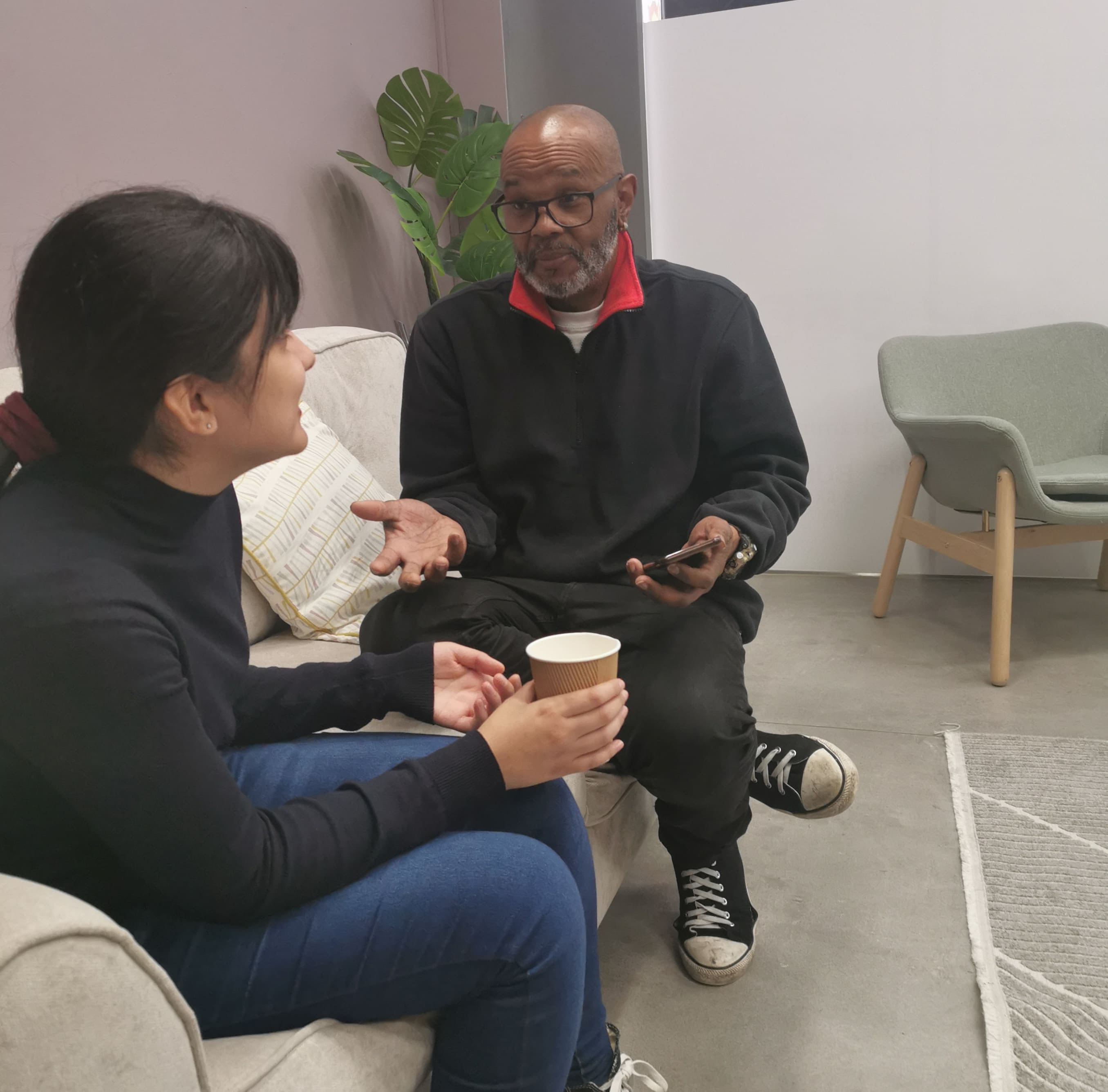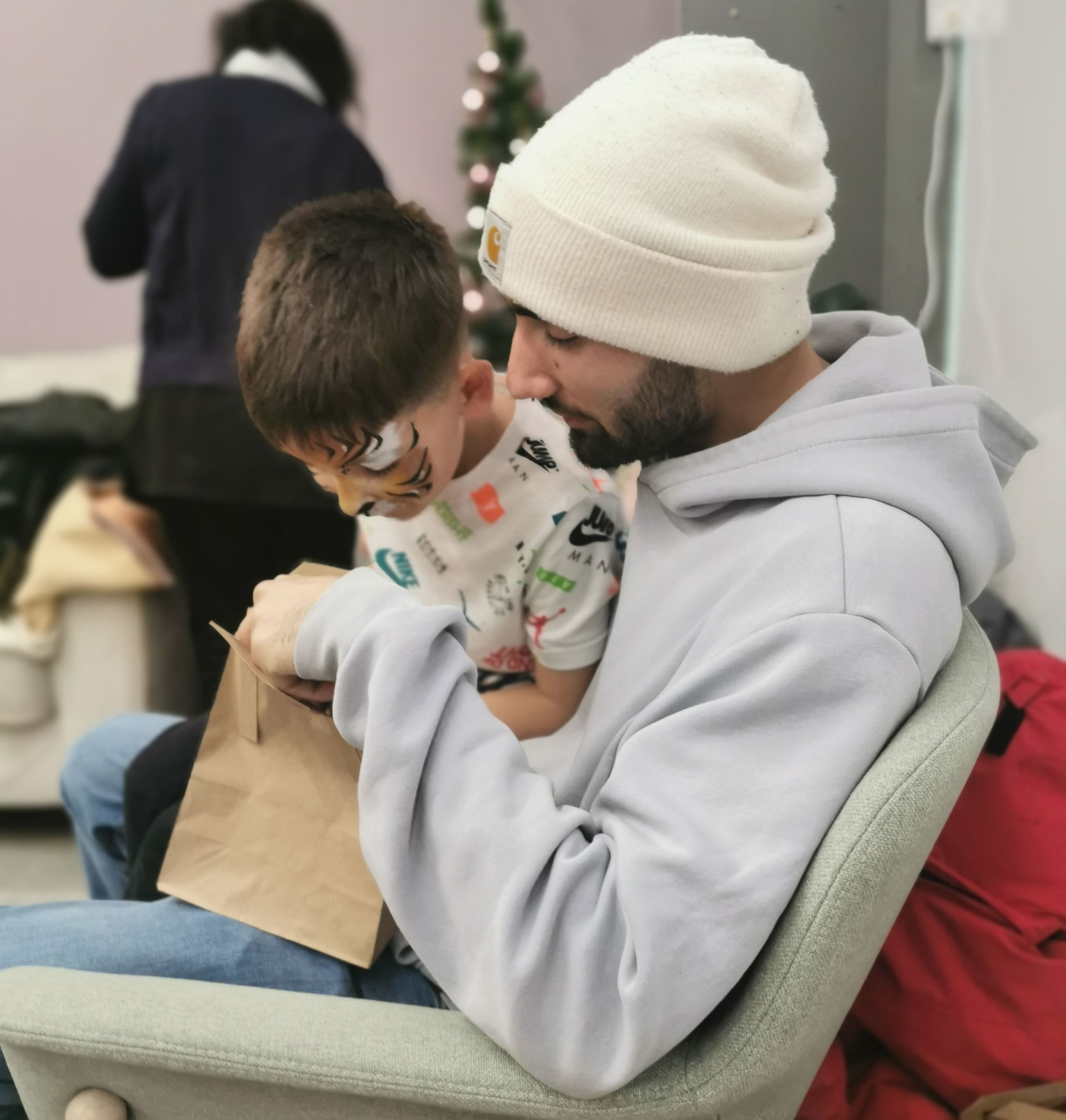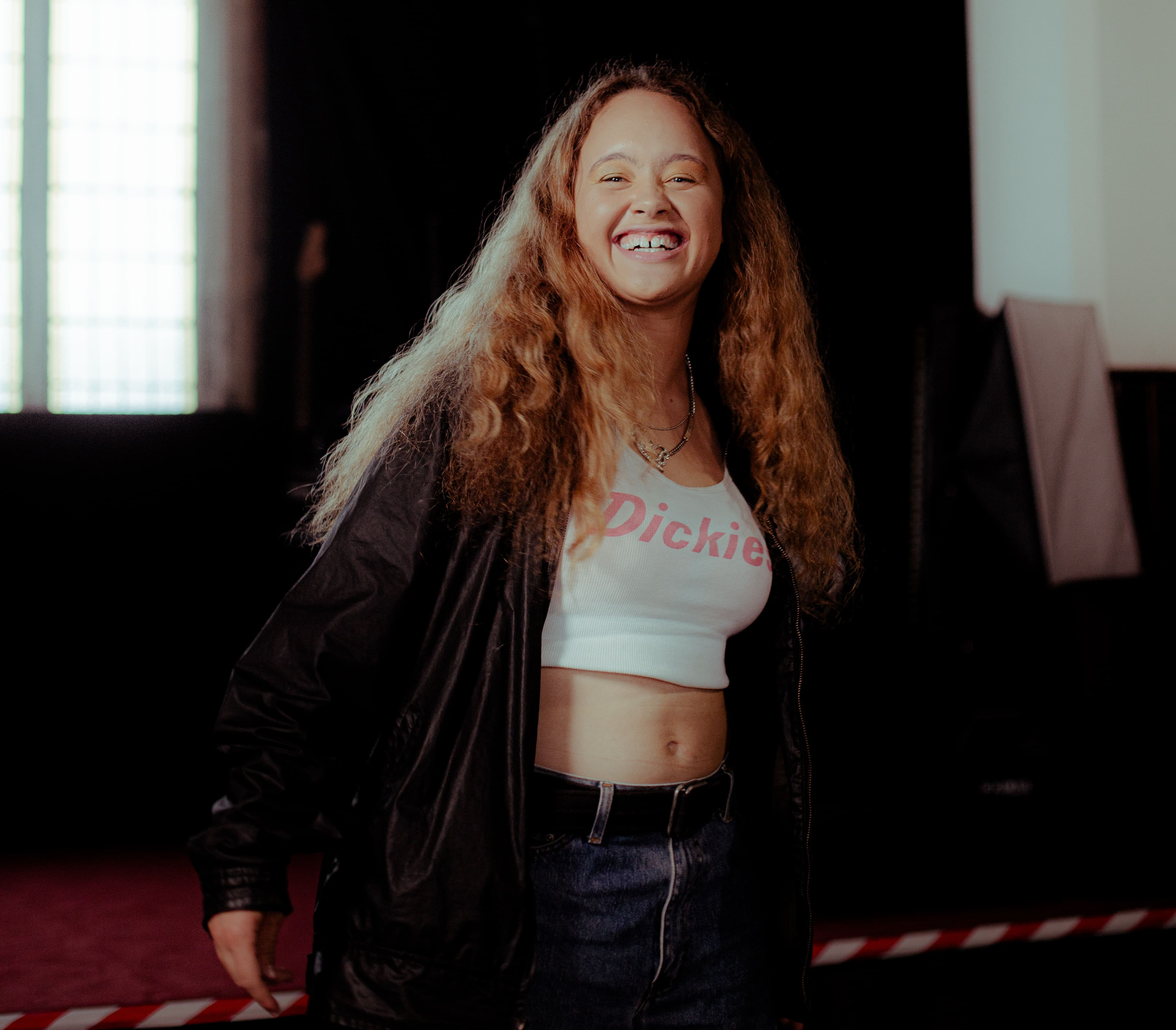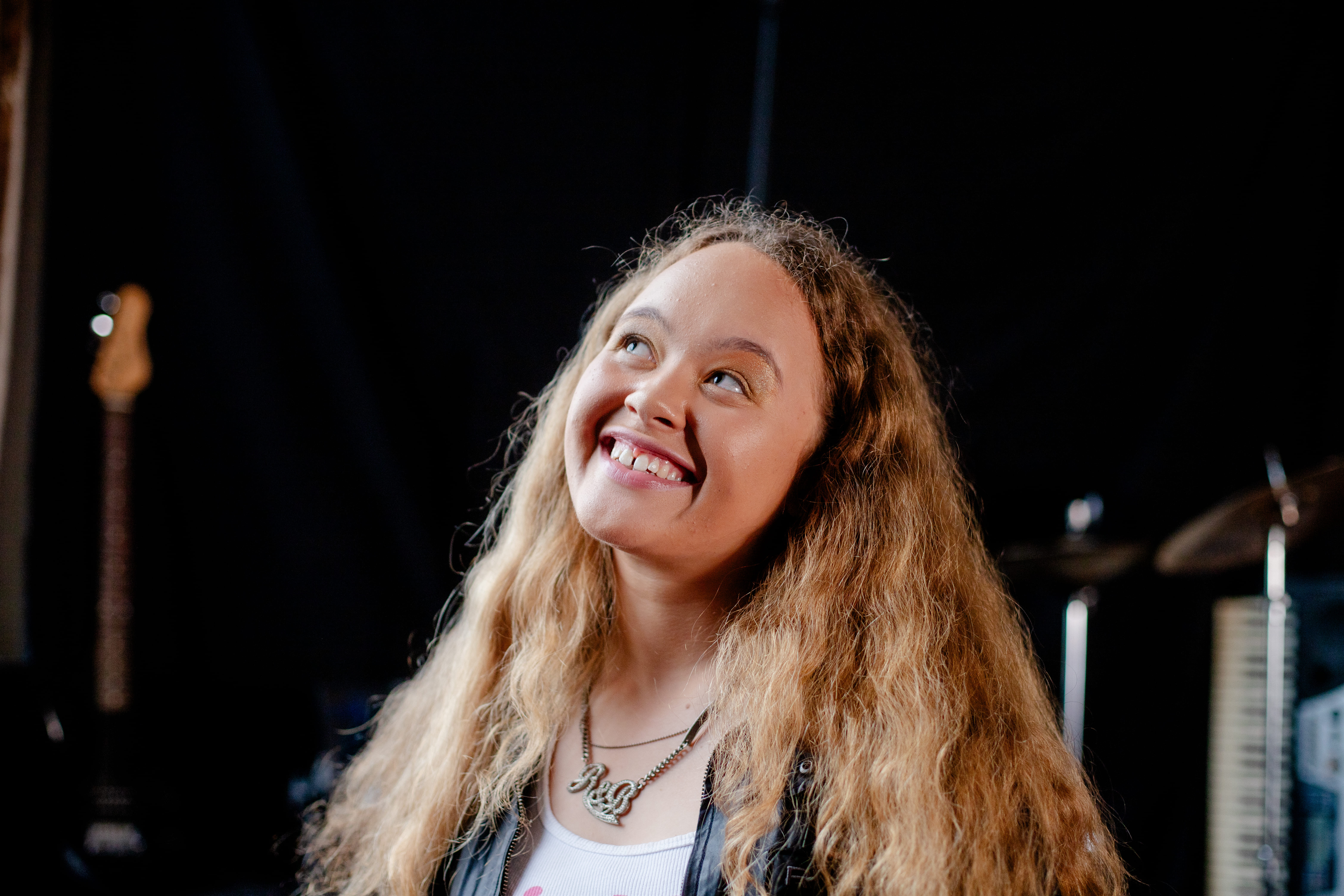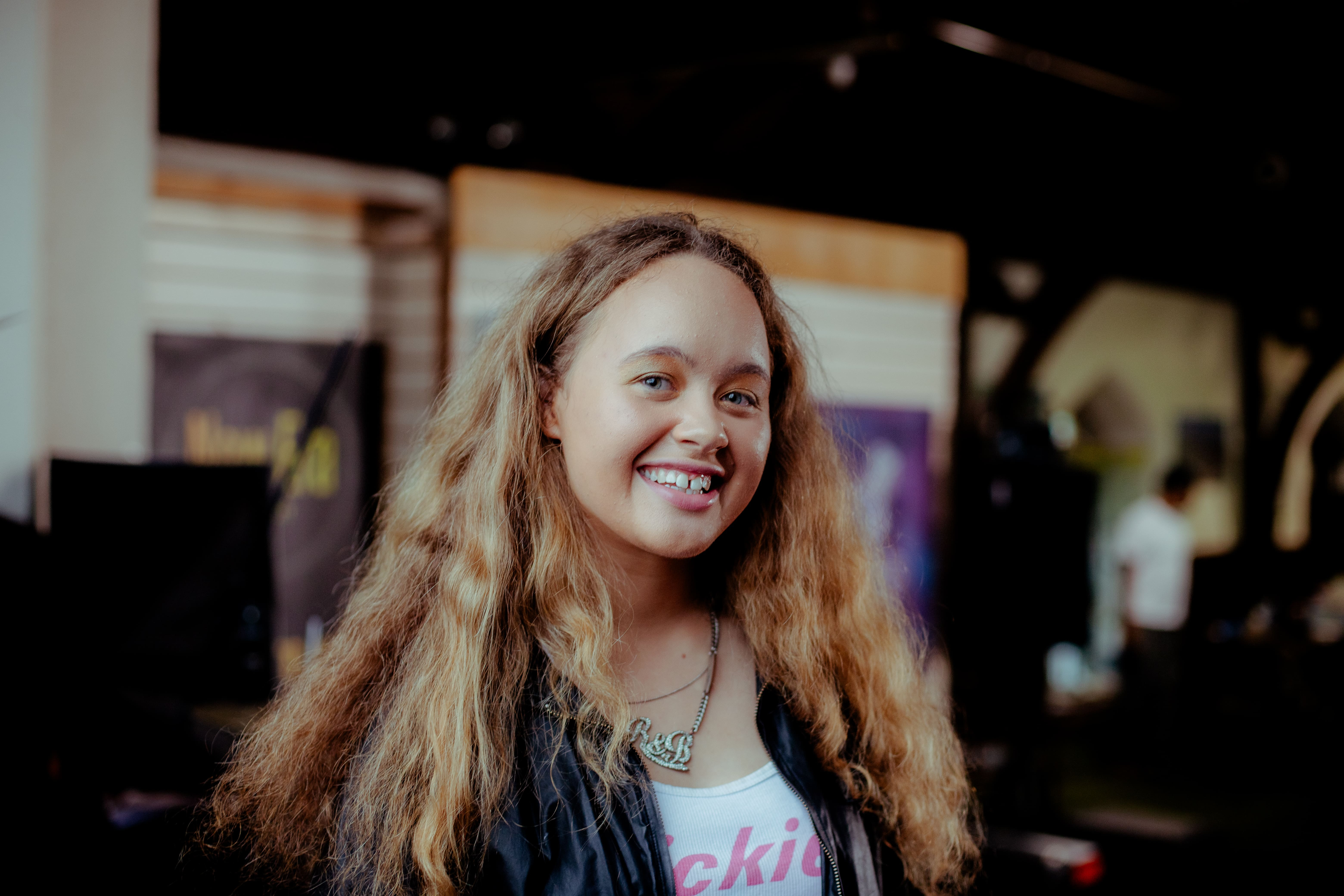Welcome from our Chair
Reverend Canon Frank Longbottom
I am delighted to know, from all the feedback I receive from staff and users of our services, that we are helping to change peoples' lives.
You are giving hope and encouragement to so many. Thank you so much for the exceptional work you do together so caringly. Your endeavour helps others to access support for themselves, and to improve waiting times for them.
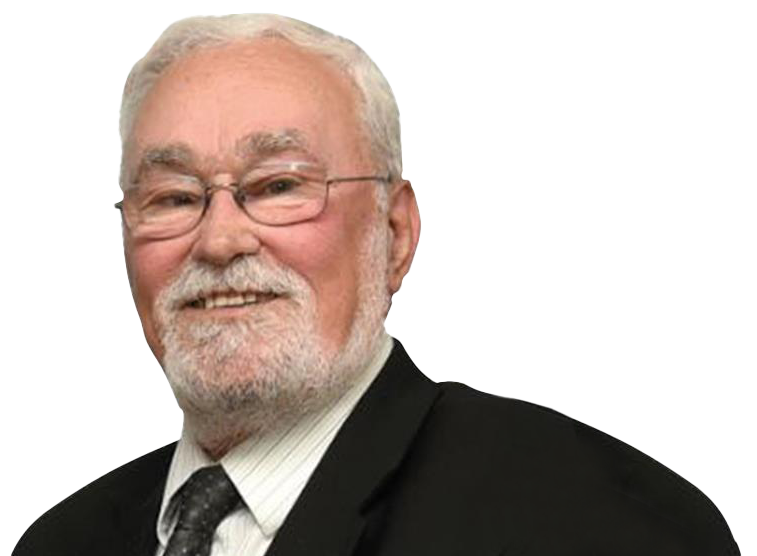
We have always worked in partnership, and I believe this has given us such a high rating by the NHS and Local Authority. We continue to build on this pillar of how we operate, most recently in service to those coming out of hospital; those we help to avoid going into hospital; those who are trying to remain well and those who just drop in for support. We do all this and yet hold on to our core vision of "better mental health for all".
Thank you for all that you do, both staff and all who use our services; together you speak to Birmingham of equality, diversity and inclusion. Let us continue our aim to achieve good health for all.
Jump to a section
We’ve heard from our six amazing story tellers on the difference Birmingham Mind has made to their lives through, crisis intervention support, recovery and volunteering, but what about the rest? Here’s the difference we made across Birmingham and Solihull last year.
25,850
people accessed a service delivered by Birmingham Mind
We answered
17,566
phone calls between 9am – 11pm over 365 days!
6,572
people contacted us via our online web chat.
1,240
people have dropped in to our new Bullring Wellbeing Hub.
Our
12
Trustees donated
528
hours of their time.
We appointed
2
new Trustees to our Board in October 2023.
Our Helpline welcomed
33
new volunteers.
12
Volunteers have accessed employment or education as a direct result of volunteering at the Birmingham Mind Helpline.
We recruited
50
new staff members last year, with a total of
194
people working for Birmingham Mind.
We delivered
89 training courses
in the last 12 months, delivered by 9 different trainers
a total of 1,145 people.
100%
of our Helpline Volunteers surveyed said they enjoy volunteering with Birmingham Mind.
107
People trained in Mental Health First Aid as part of our partnership with the Aston Villa Foundation.
149
staff received induction or refresher training within the last 12 months.
In 2024 we delivered 2 Menopause in the Workplace training courses for our Management Team.
99%
of our staff have completed our 5 Mandatory training courses: Cyber Security, Equality Diversity and Inclusion, GDPR, Health and Safety, and Safeguarding, Adults Level.
62.2%
felt that they could influence Birmingham Mind.
961
people accessed our out of hours Crisis Intervention service, known as Talking Space.
We received 44 complaints in the last 12 months, 52% were either upheld or partially upheld.
We received
78
compliments from our service users, their family and professionals.
98.5%
of our service users rated our services as either good or excellent.
97.1%
said we had contributed to their recovery journey.
98.3%
of service users said that they would most likely or definitely recommend Birmingham Mind to their friends and family.
97.6%
of respondents rated the quality of our communication as either good or excellent
8 out of 10
respondents felt involved when influencing the work of Birmingham Mind.
But ultimately, we do all of this to provide the care and support to the adults who need our services, giving them the opportunity to have the best possible chance of fulfilling their lives, being in control of their mental health, managing their recovery journey and prioritising their wellbeing.

How You Gave Your Support
You raised an incredible £211,058 through corporate partnerships, individual cash giving, regular donations and local fundraising initiatives.
This included events like Mental Elf in Cannon Hill Park, where over 200 people ran or walked 5km to raise over £18,000, whilst having great fun in the December weather.
We're so grateful to corporate partners, volunteers, participants and people we support for being such a key part of our fundraising events throughout the year, through your endlessly creative quizzes, bake sales, hikes and challenges.

How did you spend my donation?
This year our fundraised income went to directly towards supporting our:
- Mental Health Helpline which operates 365 days of the year
- Peer Mentor service which supports staff who use their own lived experience of mental health to inspire and support others.
The Trustees confirm that the financial information presented is extracted from the full financial statements.
Copies of the full financial statements, which were approved by the Charity’s Trustees on 8 August 2024, are available on our website.
| 2024 (£) | 2023 (£) | |
| Total Income | 10,297,407 | 10,075,108 |
| Total Expenditure | 10,308,913 | 10,371,846 |
| Net Income | (11,506) | (296,738) |
| Recognised Gains/(Losses) | (228,392) | (172,000) |
| Net Movement in Funds | (239,898) | (468,738) |
| Total Funds brought forward | 3,403,671 | 3,872,409 |
| Total Funds carried forward | 3,163,773 | 3,403,671 |
Birmingham Mind has 21 locations (made up of offices, accommodation sites and community spaces) across Birmingham, with our Head Office based in the Jewellery Quarter. For enquiries to our Head Office please call 0121 608 8001.
We are proud to have received numerous awards, nominations, and celebrations over the past 12 months, reflecting the hard work and dedication of our team. Here's a roundup of our recent achievements:
Two Mind Excellence Awards - February 2023
Following our Mind Quality Mark (MQM) Award in 2022. We were delighted to receive two Mind Excellence Awards in 2023, for our work in Influence & Participation and Finance & Fundraising.
“These awards are a testament to all the hard work done by Birmingham Mind in our Finance Team and around Participation and Influence (Service user involvement). We should never stop striving to improve and I am proud that Birmingham Mind has received the recognition it deserves in both of these categories.” - Helen Wadley, CEO
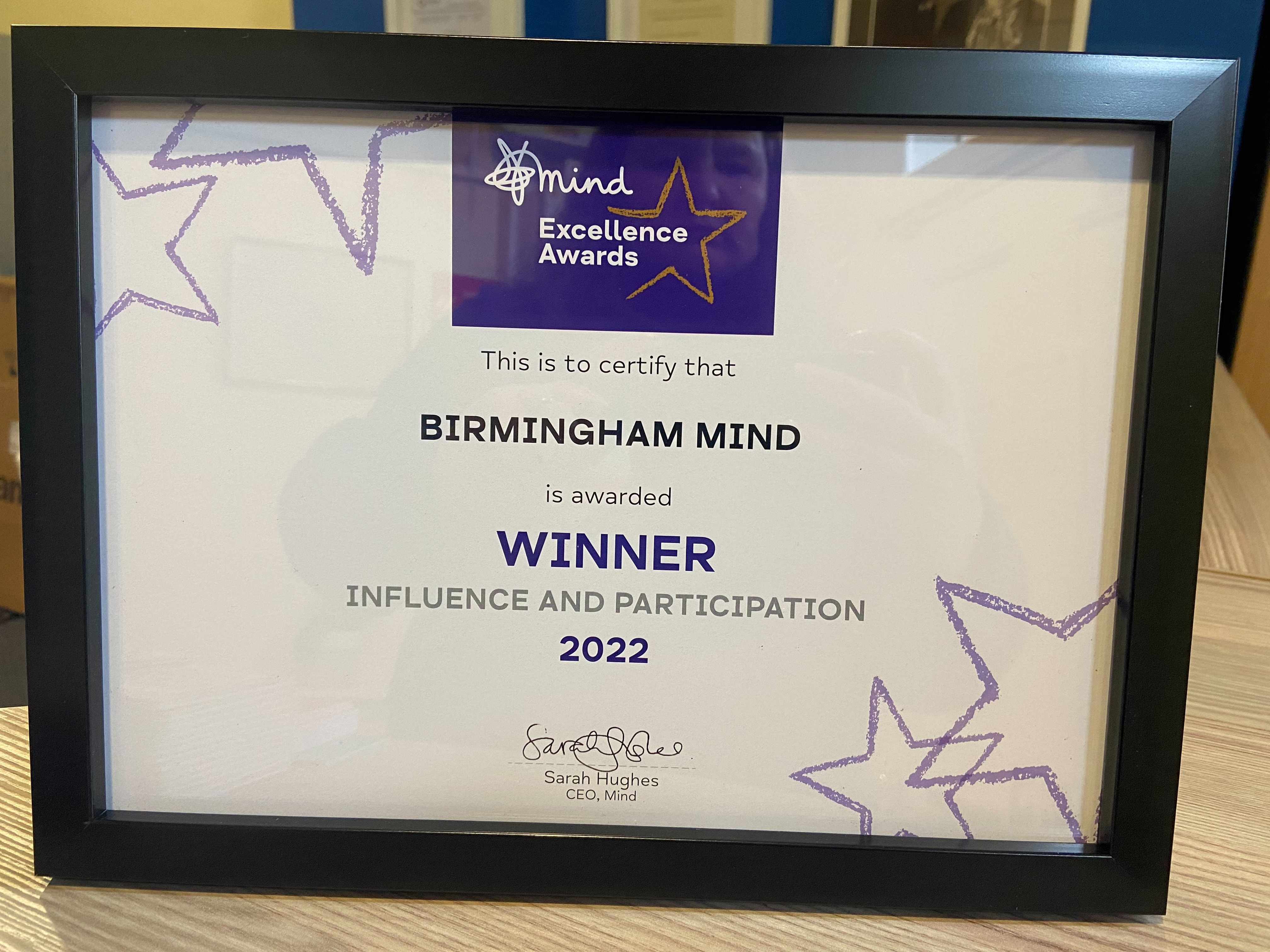
BBC Gardeners World Live | Wander and Wonder - Gold Award June 2023
Awarded to the brilliant RHS Level 2 Students from Winterbourne House and Gardens for their entry into the BBC Gardeners World Live, Beautiful Borders category. The border was designed for the service users of Rookery Gardens. The 25 ceramic snails hidden throughout the border represent the 25 homes on site at Rookery Gardens and is now rehomed in our orchard for the benefit of residents, staff, volunteers and visitors.
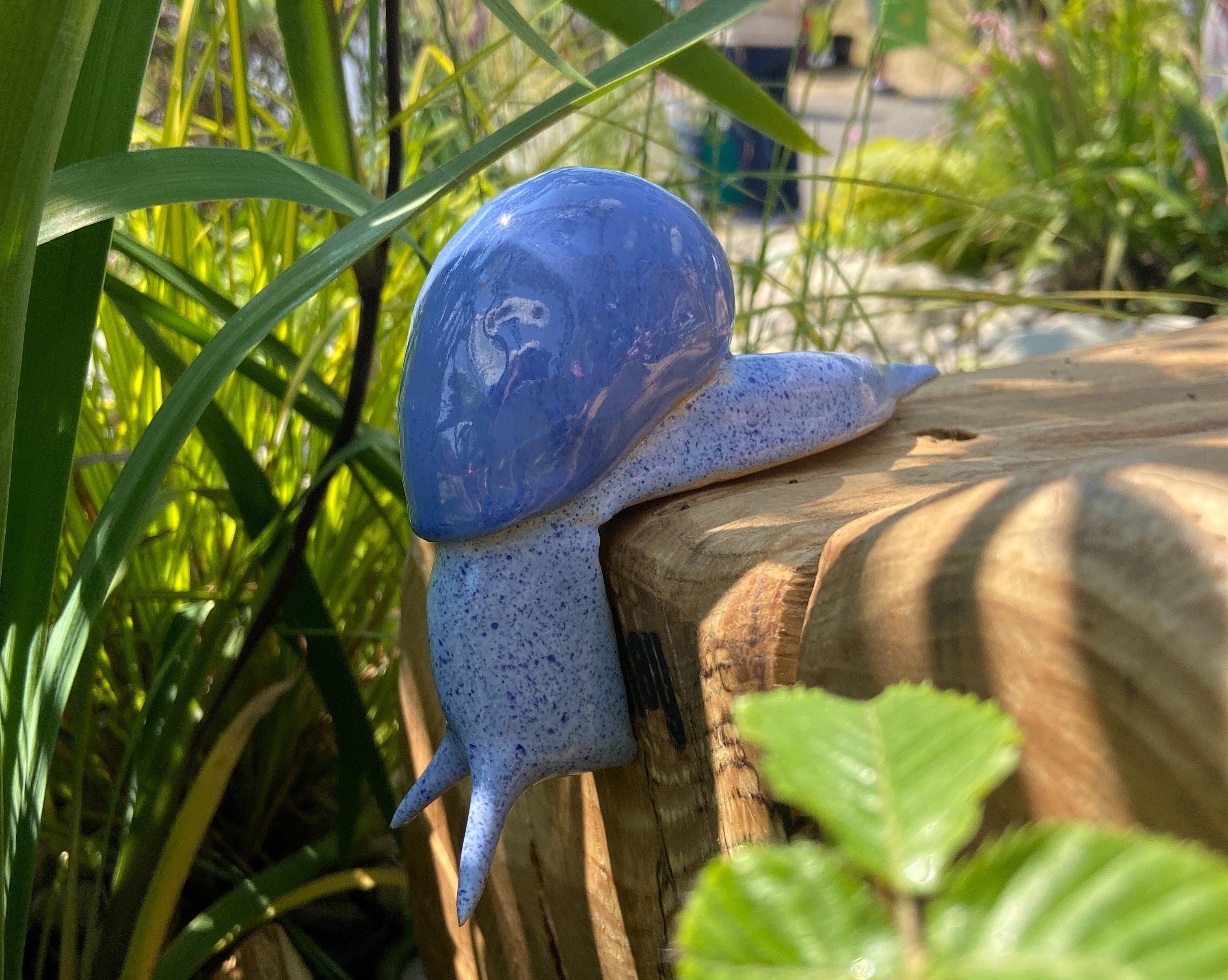
Third Sector Care Awards March 2024
Leadership Award, awarded to Donna Henderson our Talking Space Service Manager Community Engagement Award, awarded to our East Birmingham Vulnerable Adults Team.
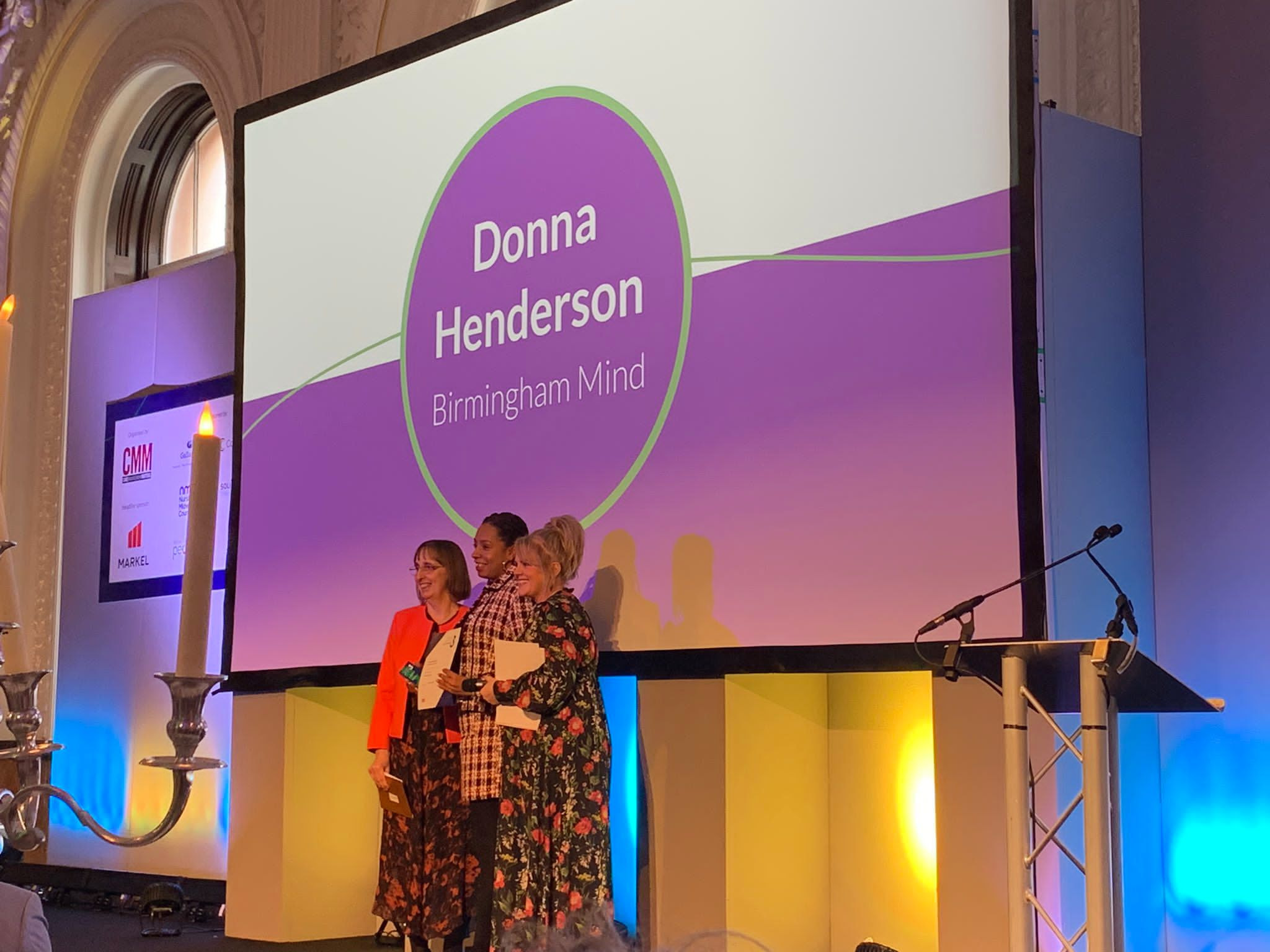
Birmingham Mind Staff Long Service Awards December 2023
We celebrated staff who had achieved their 5 year, 10 year and 15 year long service awards, with four staff members collecting their 20 year award, two people received their award for 30 Years service. Shirley Williams, Operations Manager for Registered Services, collected our first ever 40 Year Service Award.
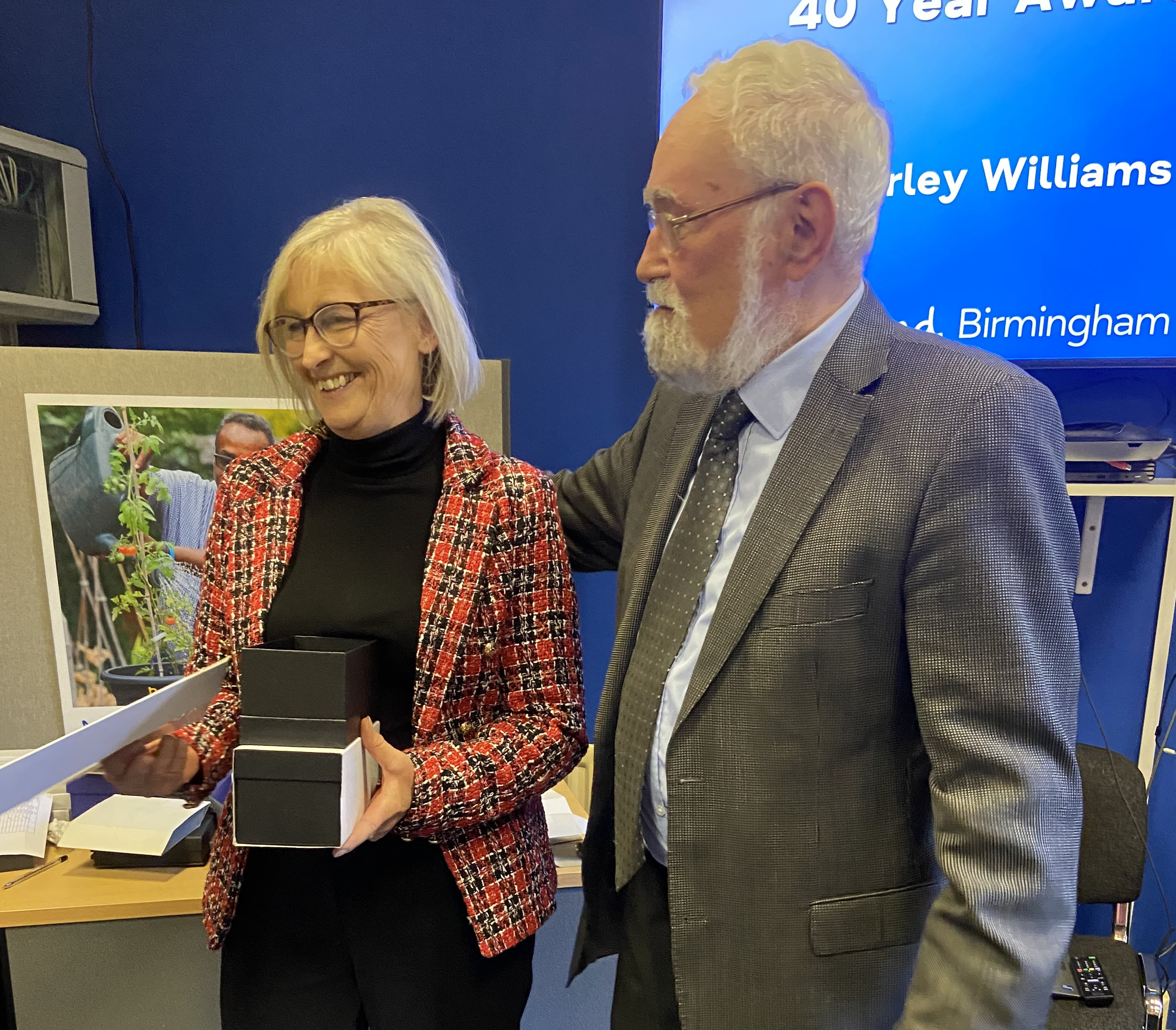
Birmingham Awards - Finalist November 2023
Donna Henderson Talking Space Service Manager, a finalist in the category of Employee of the Year.

Midlands Service Excellence Award - Rising Star of the Year March 2024
Awarded to our Fundraising Lead Kerrie Henry-Edge.
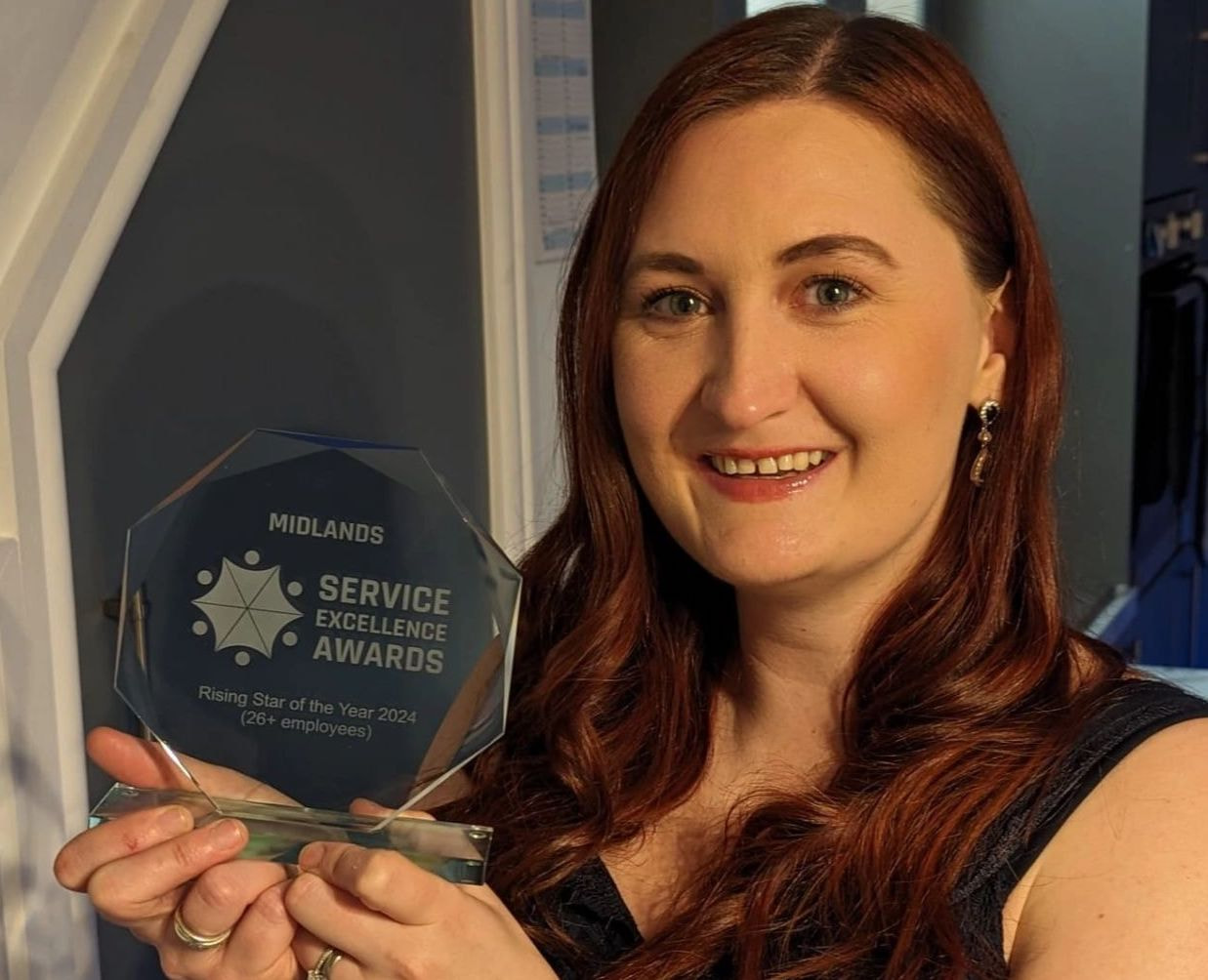
HSJ Partnership Award January 2024
Grounded at Selly Oak and Birmingham Minds Talking Space service were a finalist in the category of Best Mental Health Partnership with the NHS.
In Memory
In April 2024, our Involvement & Participation Manager Andrew Nicholls sadly passed away.
Andrew had worked for Birmingham Mind for 22 years, starting his career working in our supported housing service, later taking up the role of Volunteer Co-ordinator and more recently the position of Influence and Participation Manager.
In 2019, Andrew took on the role as Manager of our Anti-Stigma group and, through his passion to acknowledge that mental health stigma still exists, set to work to break down those barriers faced by so many by working with different faith groups, women’s and children’s services and the LGBTQIA community. His empathy and kindness touched the lives of many and he will be greatly missed by all who had the privilege of knowing him.
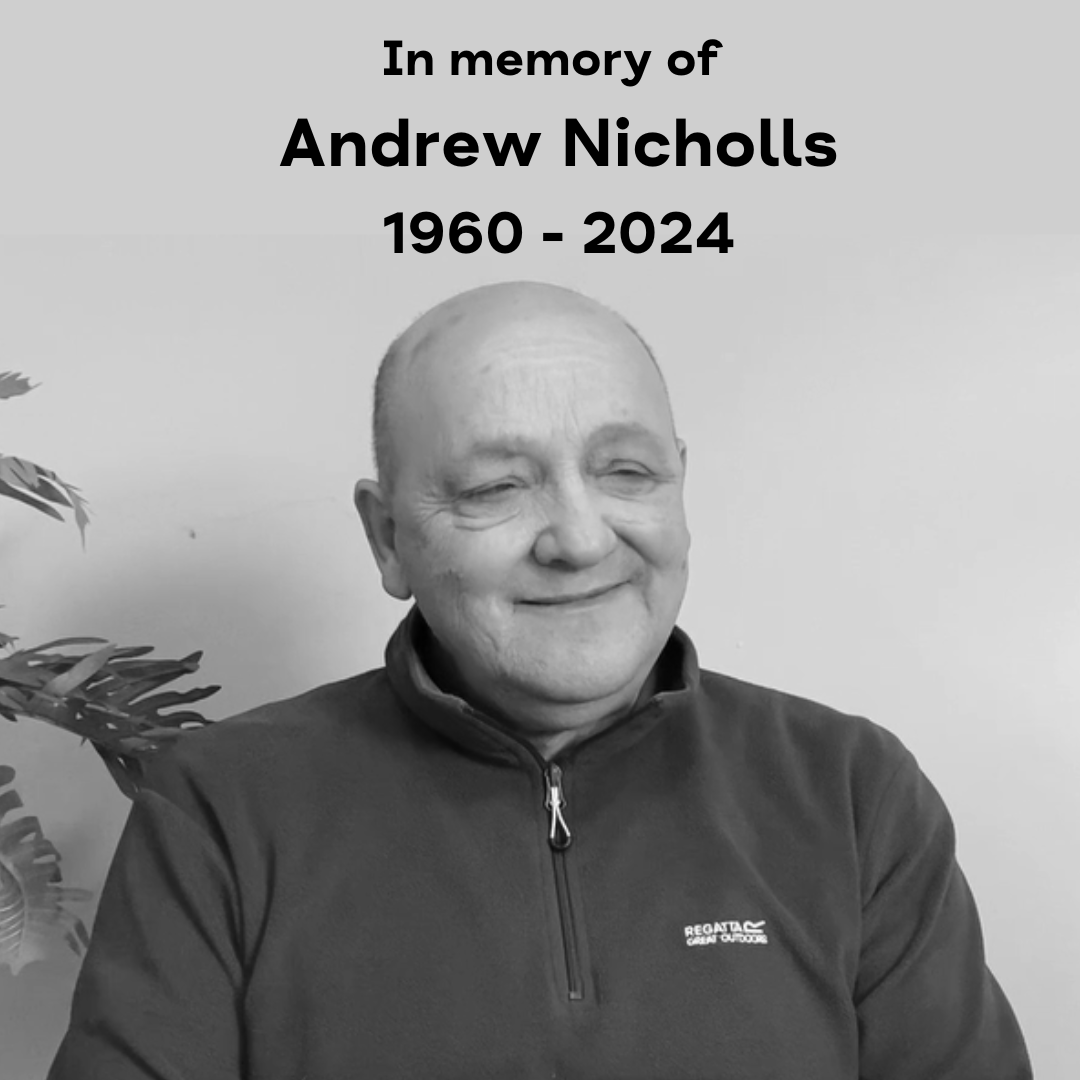
Andrew's dedication to his work and his passion for making a difference to the lives of others will always be remembered.
In memory of Andrews dedication and service, we are introducing the Andrew Nicholls Award. A prestigious annual award, that will recognise those who empower, encourage and inspire the voice of others. More details about the award will be announced on our website soon.
Reflections from our CEO!
Helen Wadley
This year, like many before it, has seen some incredible milestones achieved through the dedication of our services. However, it has also been marked by the loss of someone very dear to us —Andrew Nichols. Andrew worked with us for 22 years and played a pivotal role in shaping our efforts around service user engagement, influence, and our external anti-stigma campaigns. He is deeply missed.
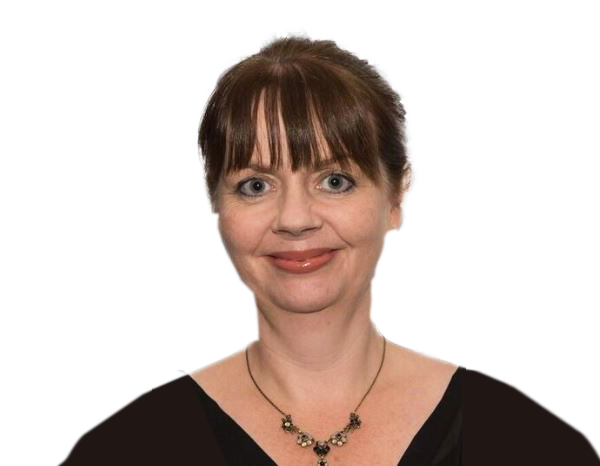
As I reflect on the stories within this impact report, the idea of "partnership" continually stands out. Our staff possess remarkable skills in building trust with those we serve, offering unwavering support and walking alongside them on their journey. I often envision a person at a crossroads, with one of our team members by their side—explaining the various paths available, but always reassuring them that we’ll be there, ready to walk down whichever road they choose.
Whether someone is in a crisis, is partway through their journey, or is feeling stuck, we are committed to being there—wherever and whenever we are needed. Financial support allows us to reach more people, but an investment in Birmingham Mind goes beyond funding. It empowers us to place more staff at those crossroads, helping individuals take meaningful steps toward a better life.
Thank you to our staff, volunteers, trustees, supporters, and funders for making this work possible.
Download section as PDFBirmingham Mind would like to thank the following for their continued financial contributions:
- Birmingham & Solihull Mental Health Foundation Trust
- Birmingham & Solihull Mental Health Provider Collaborative
- Birmingham City Council
- Forward Thinking Birmingham
- NHS England
- Stone Family Foundation
- Walsall Council
Housing Partners
- Adullam Homes Housing Association
- Bromford Housing
- Citizen Housing
- Longhurst Group
- Midland Heart Housing Association
- Nehemiah Housing Association
- R & J Support & Care Services Limited
